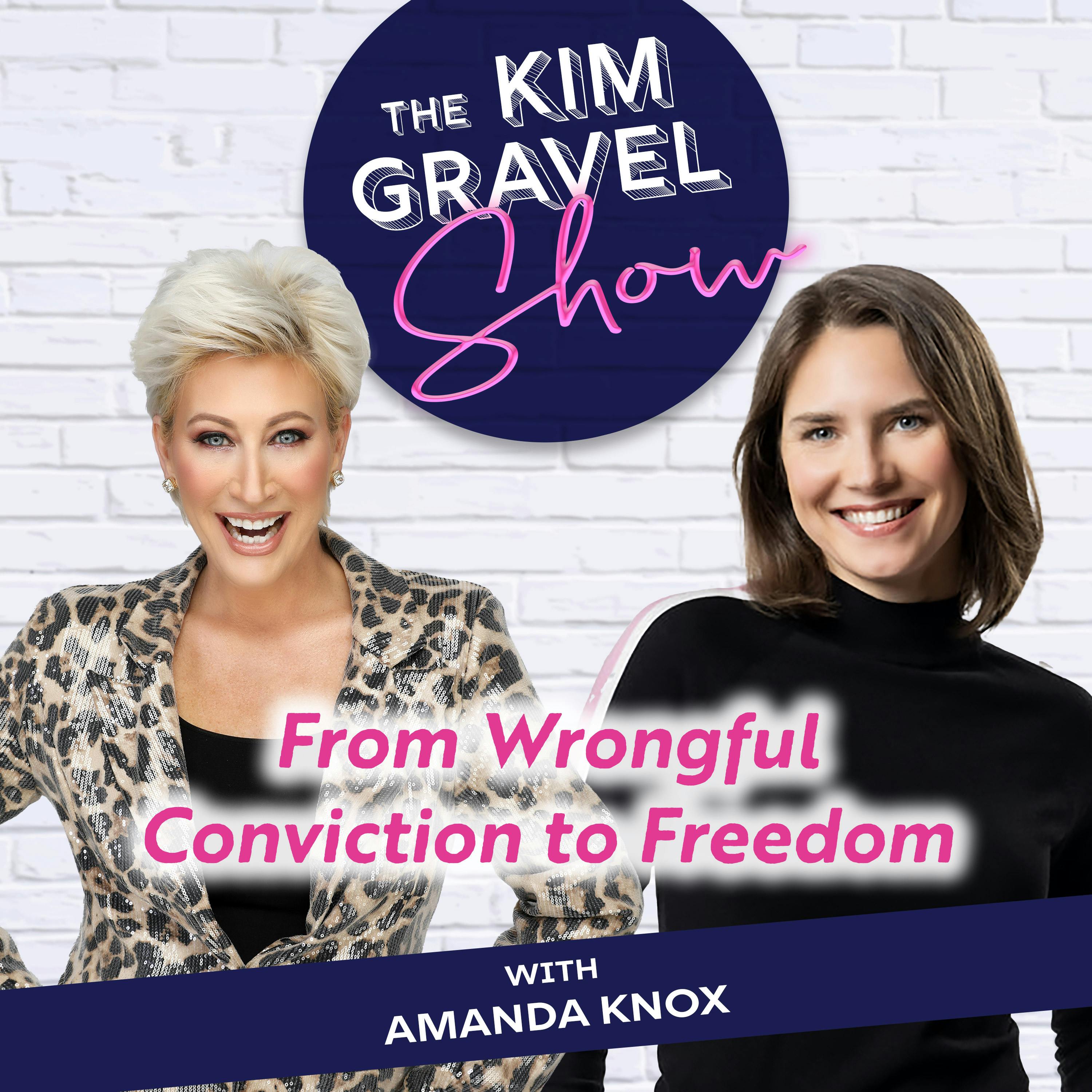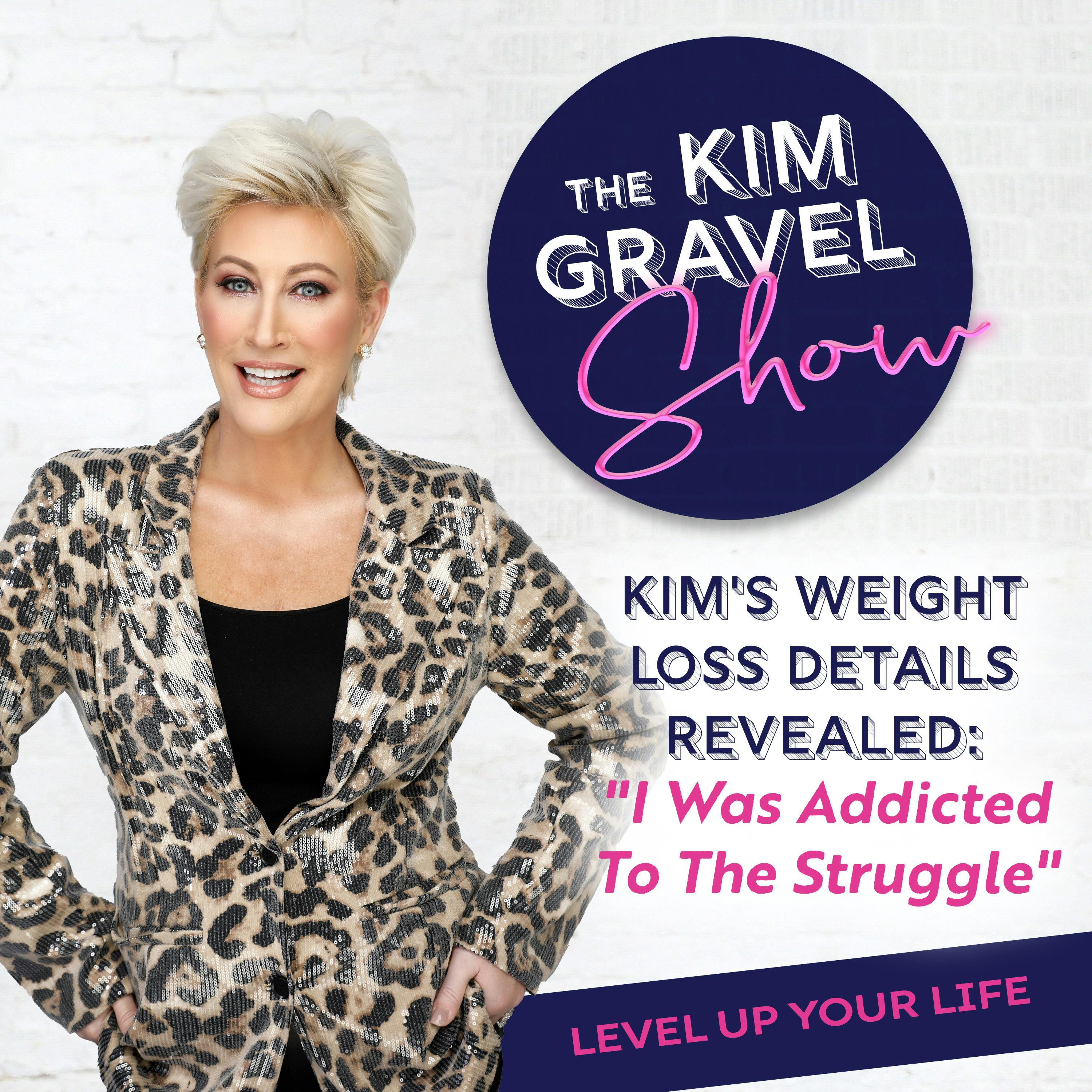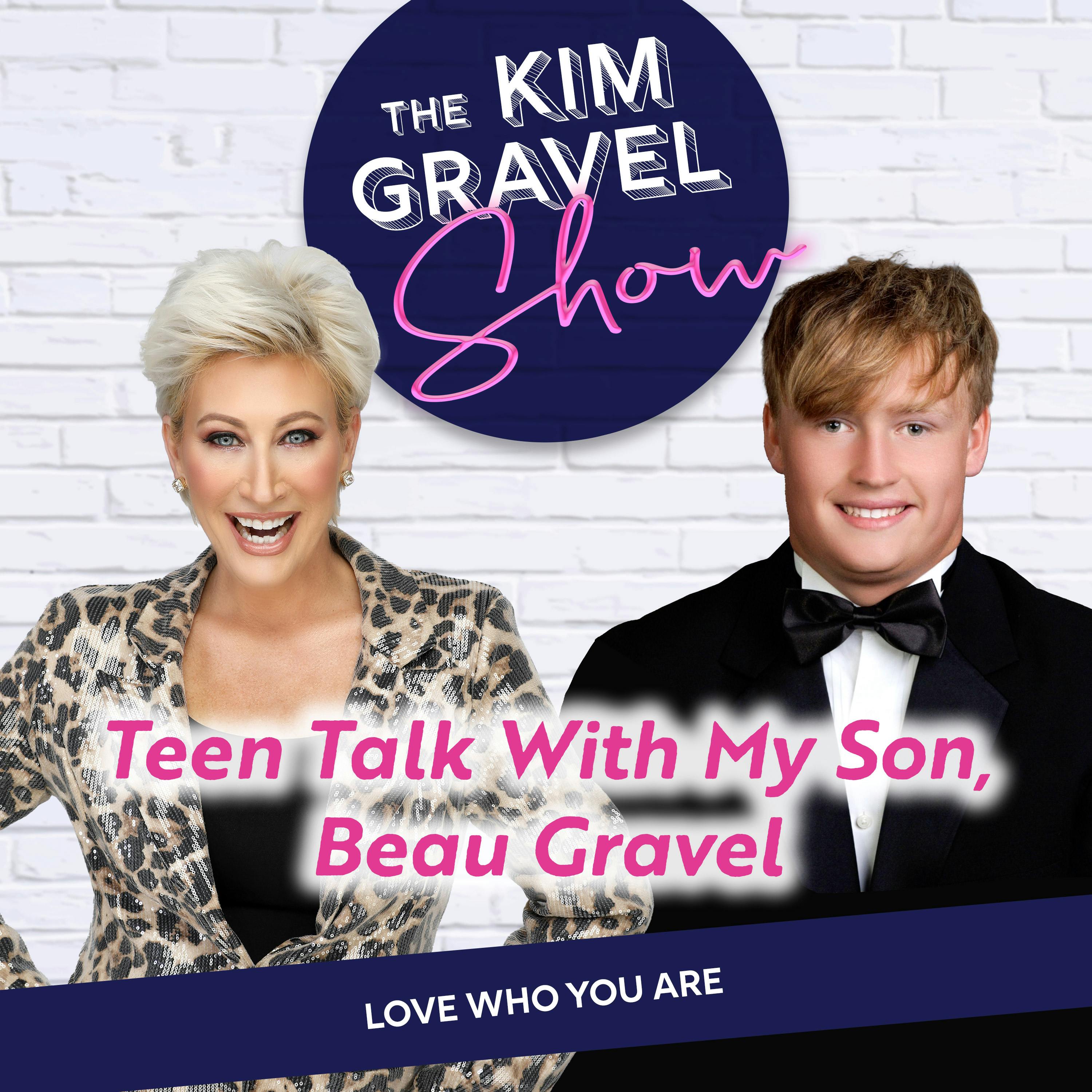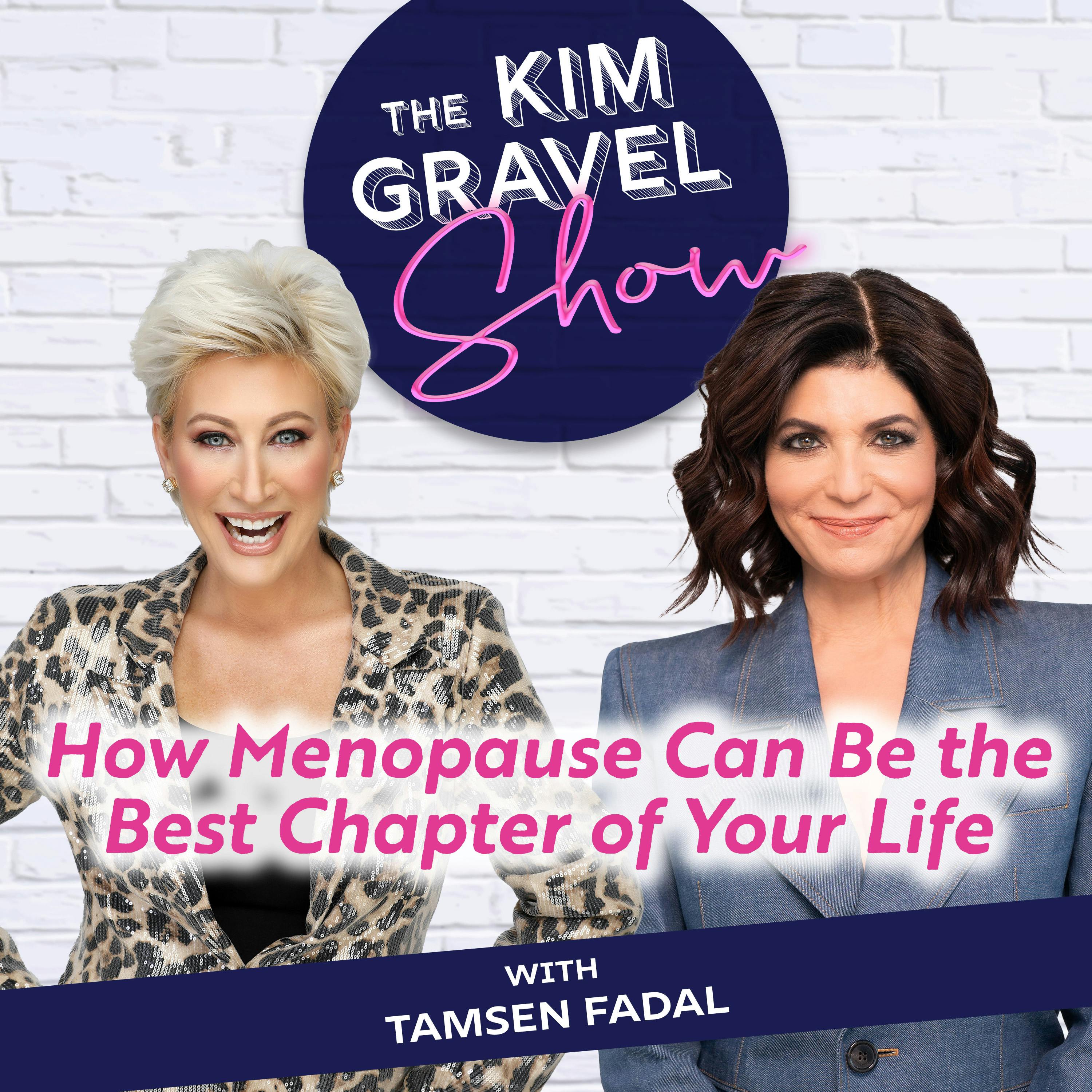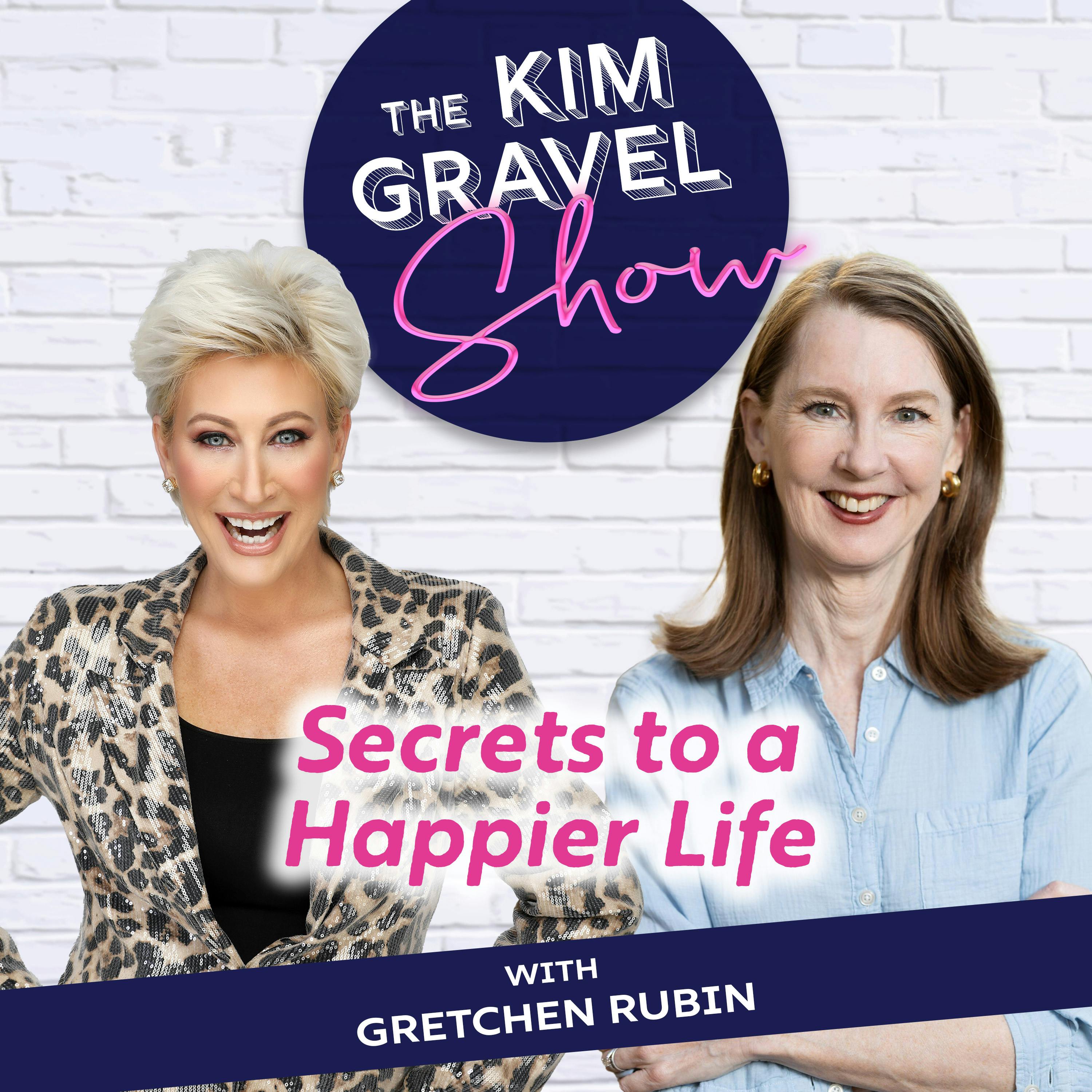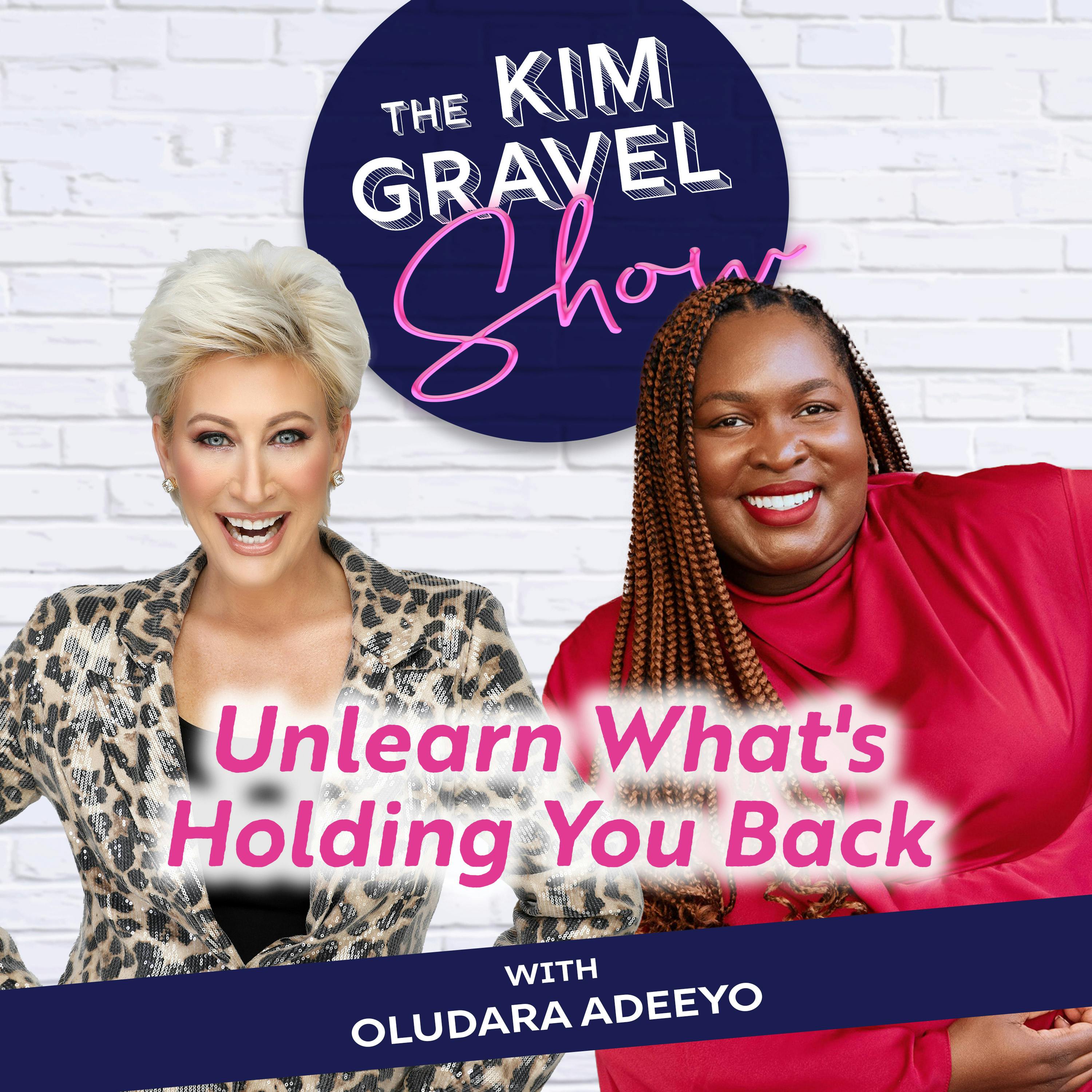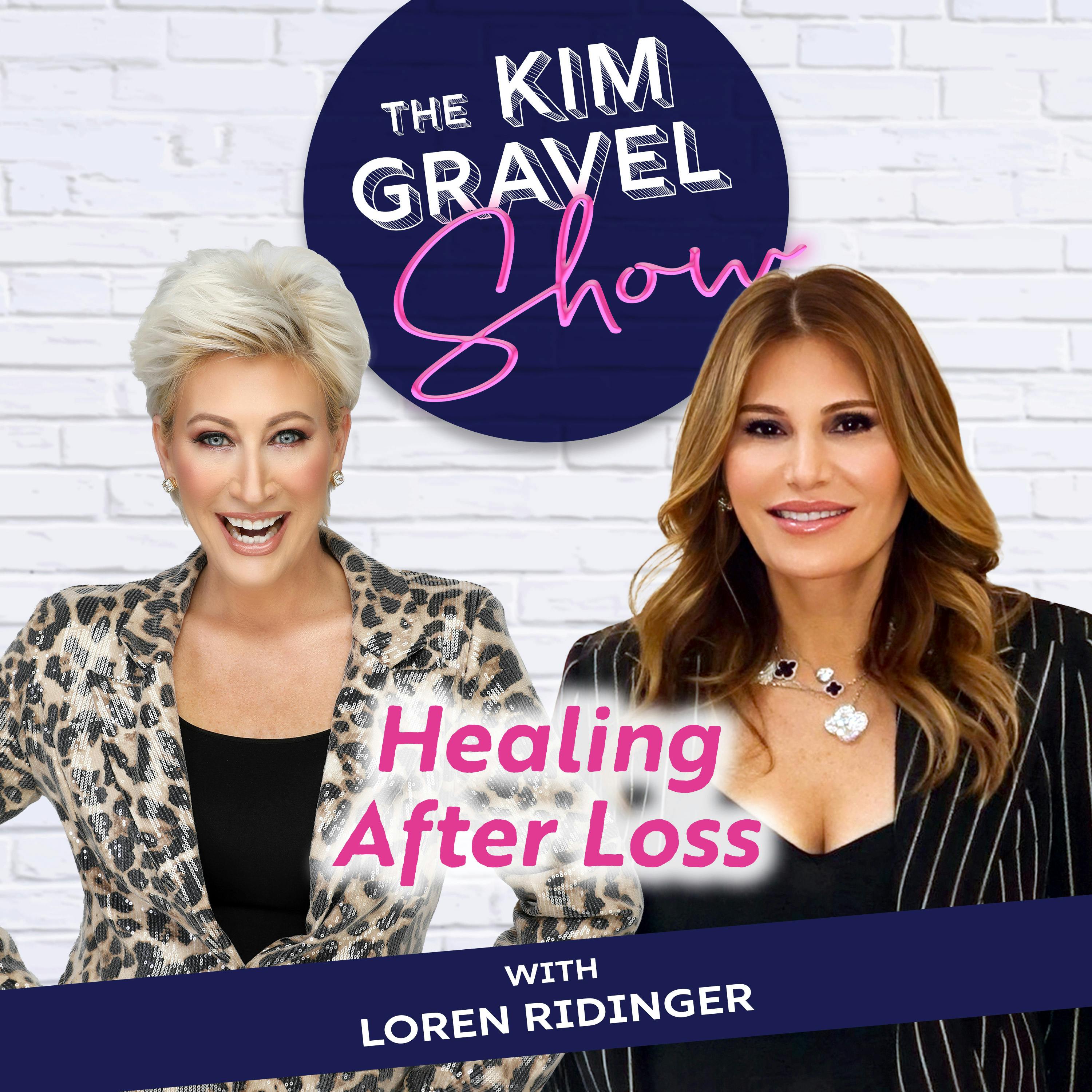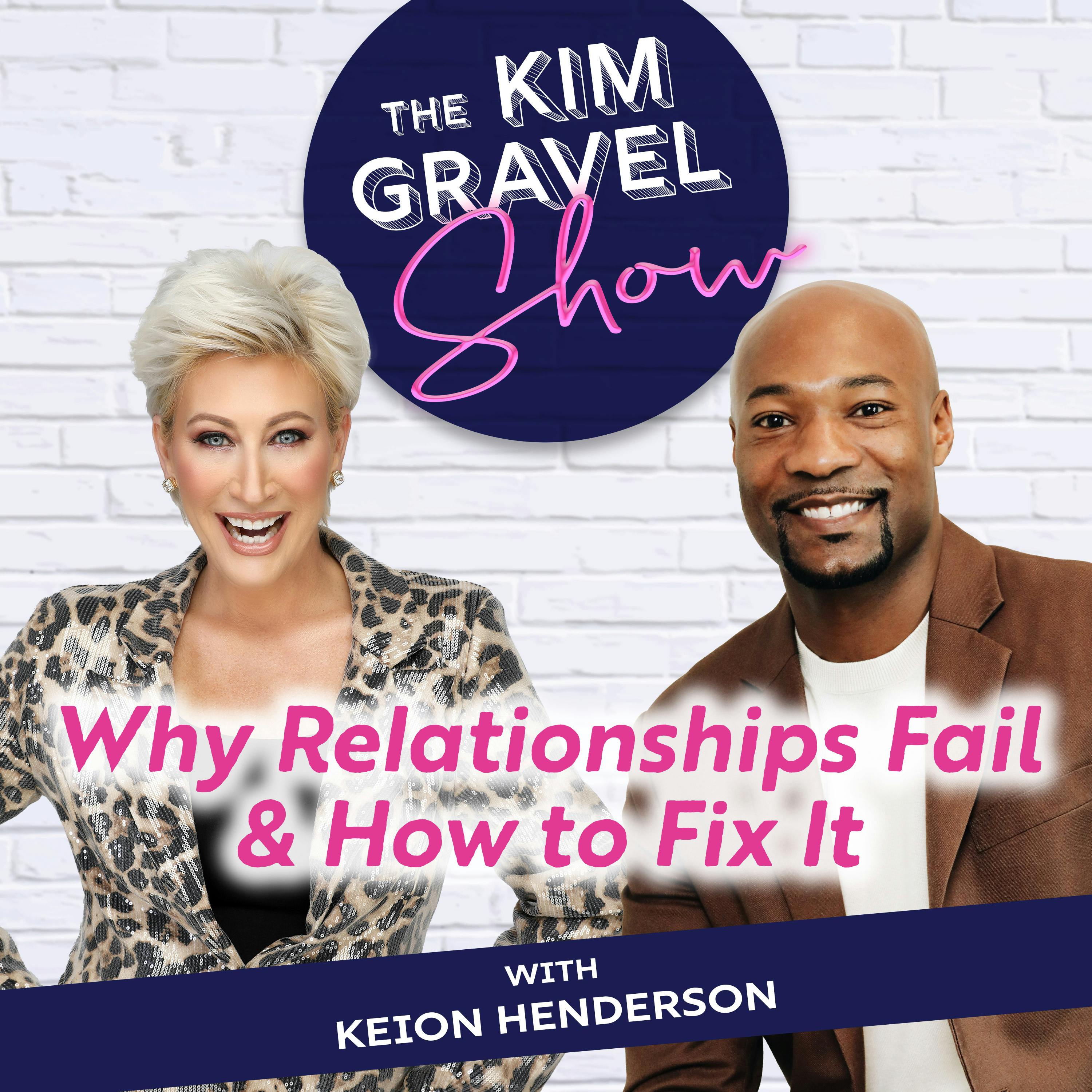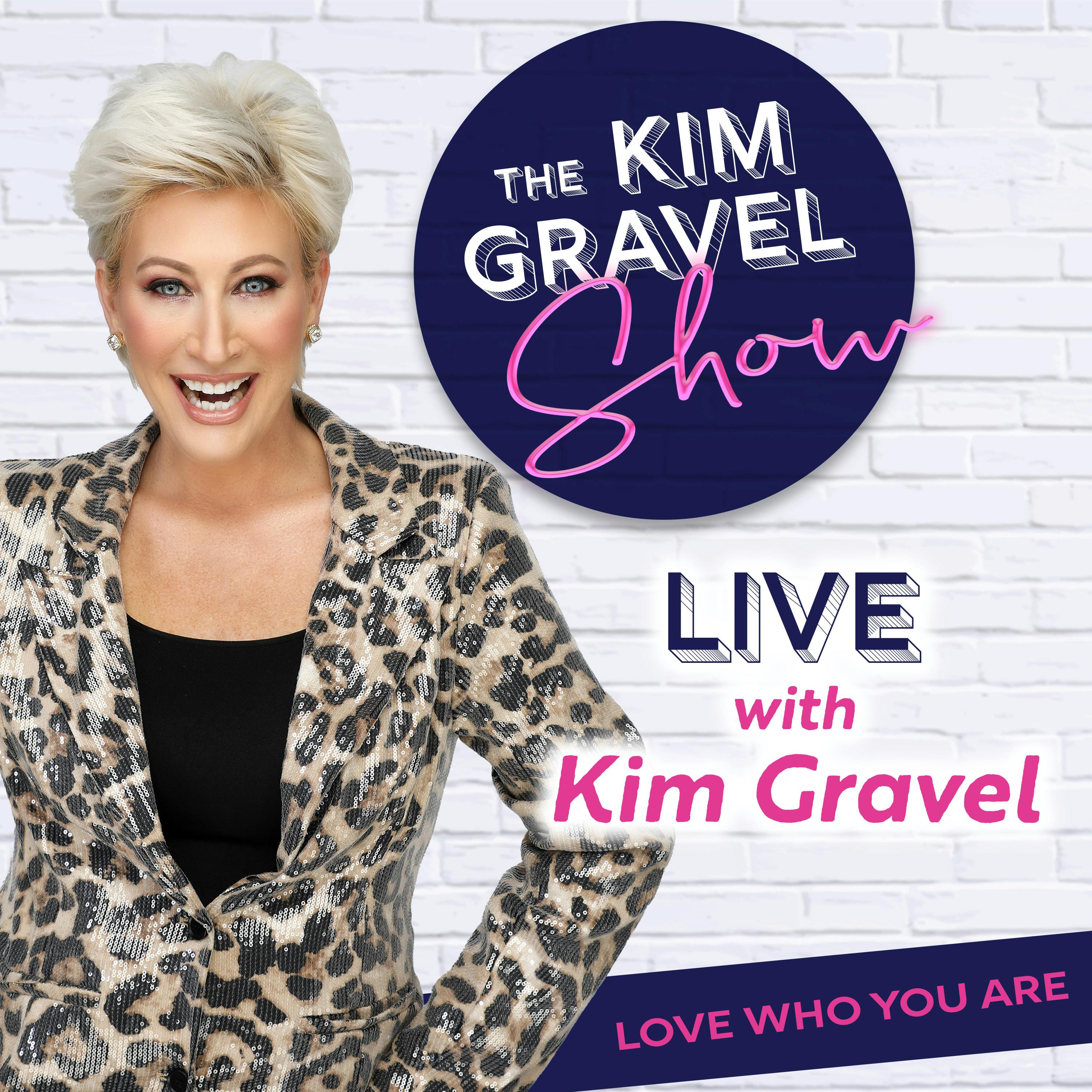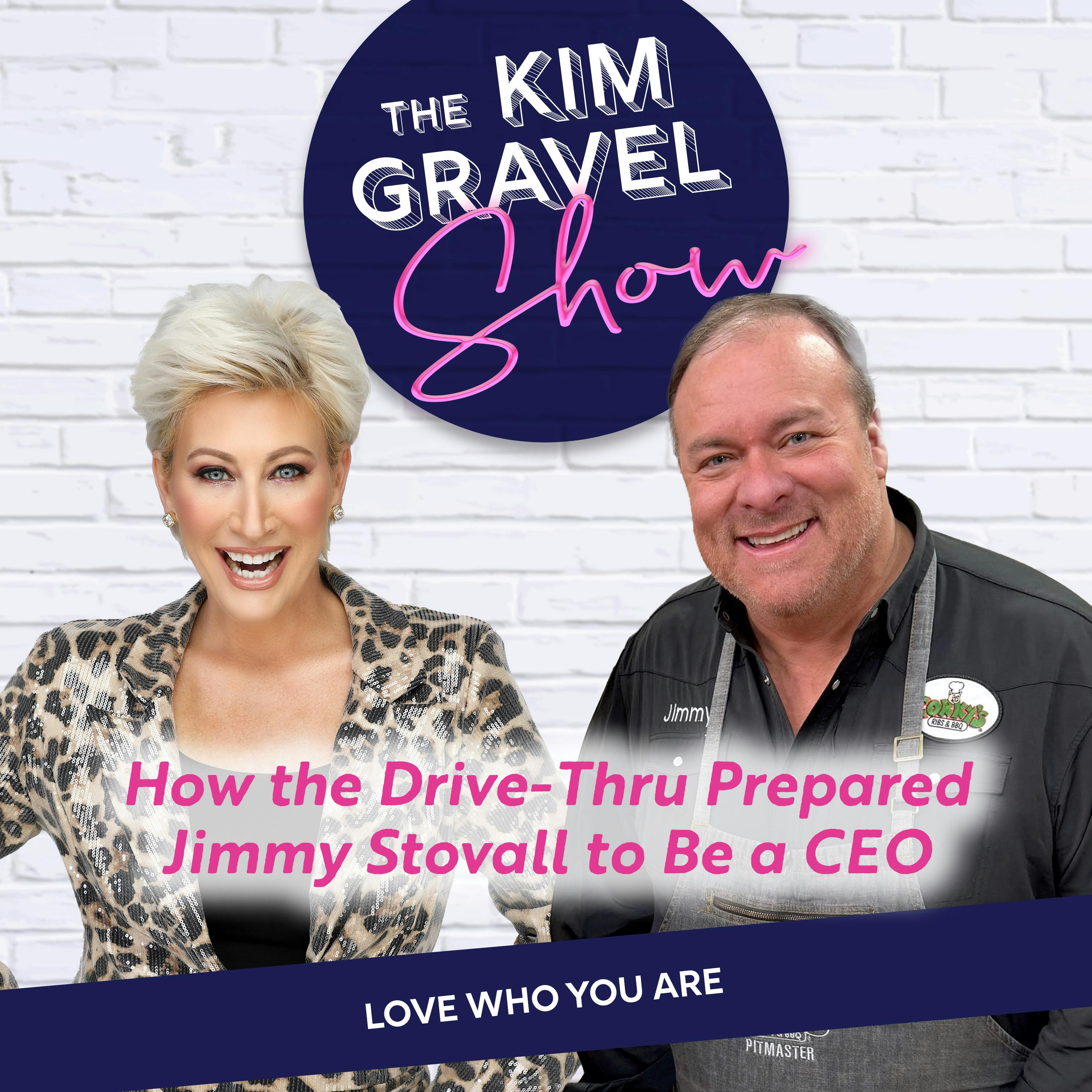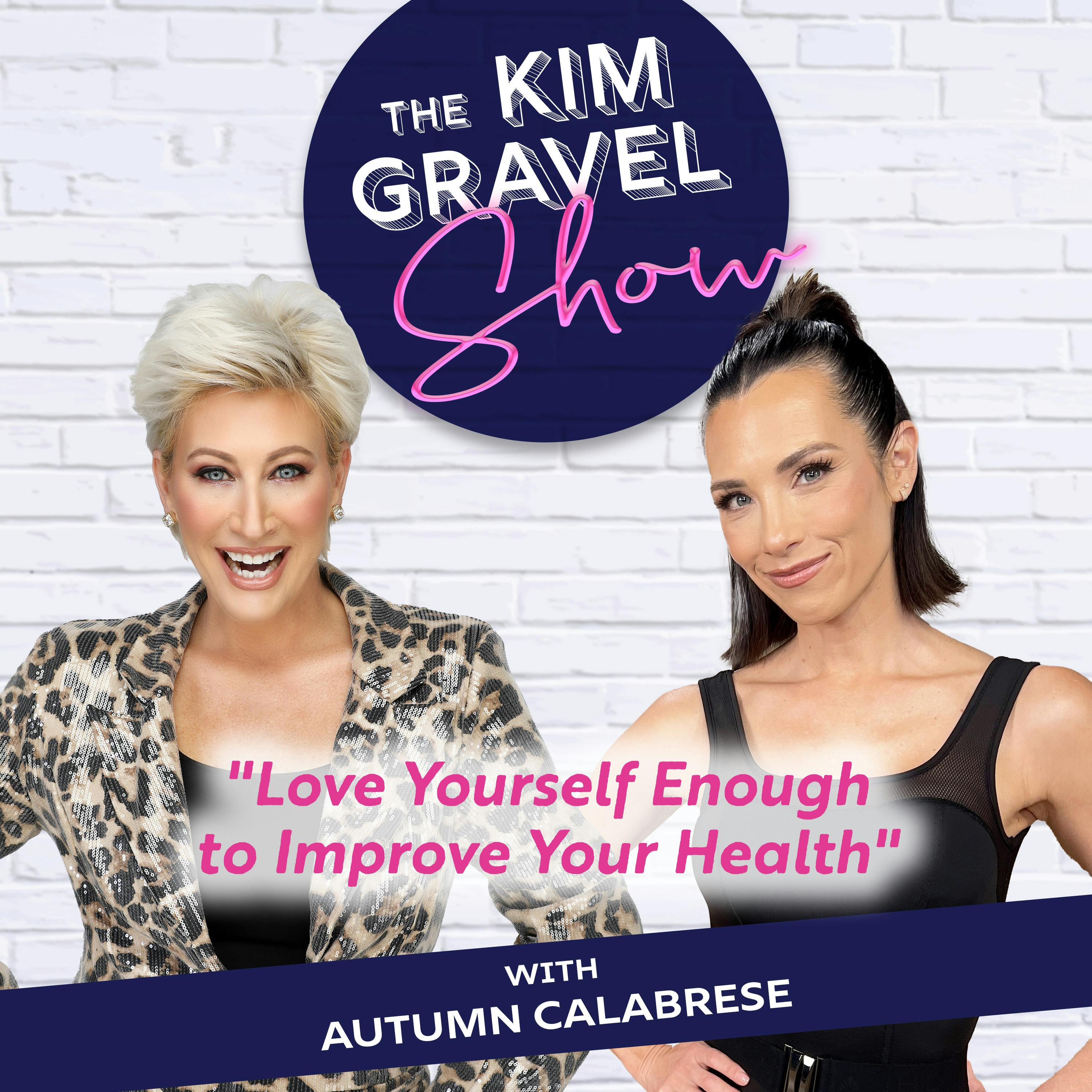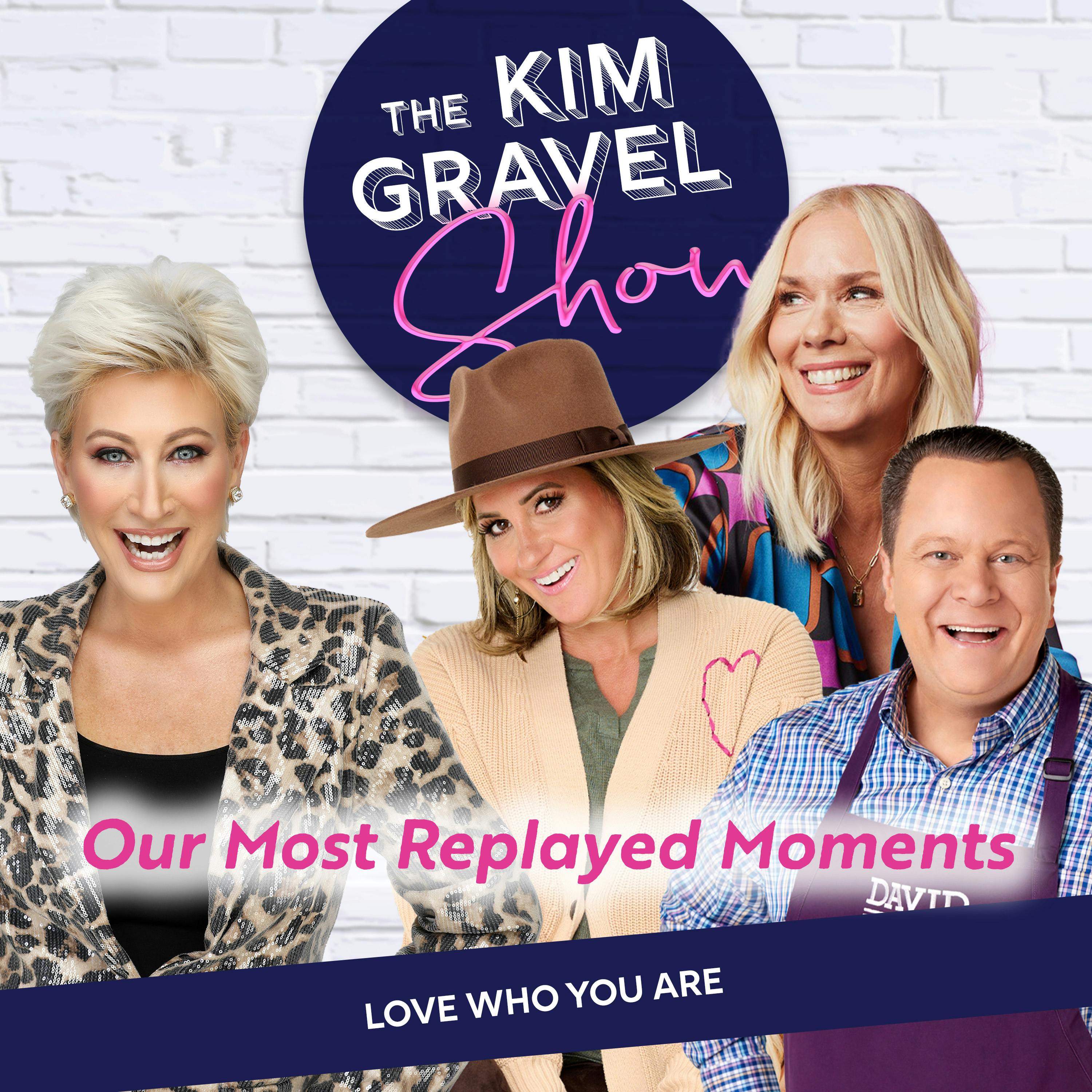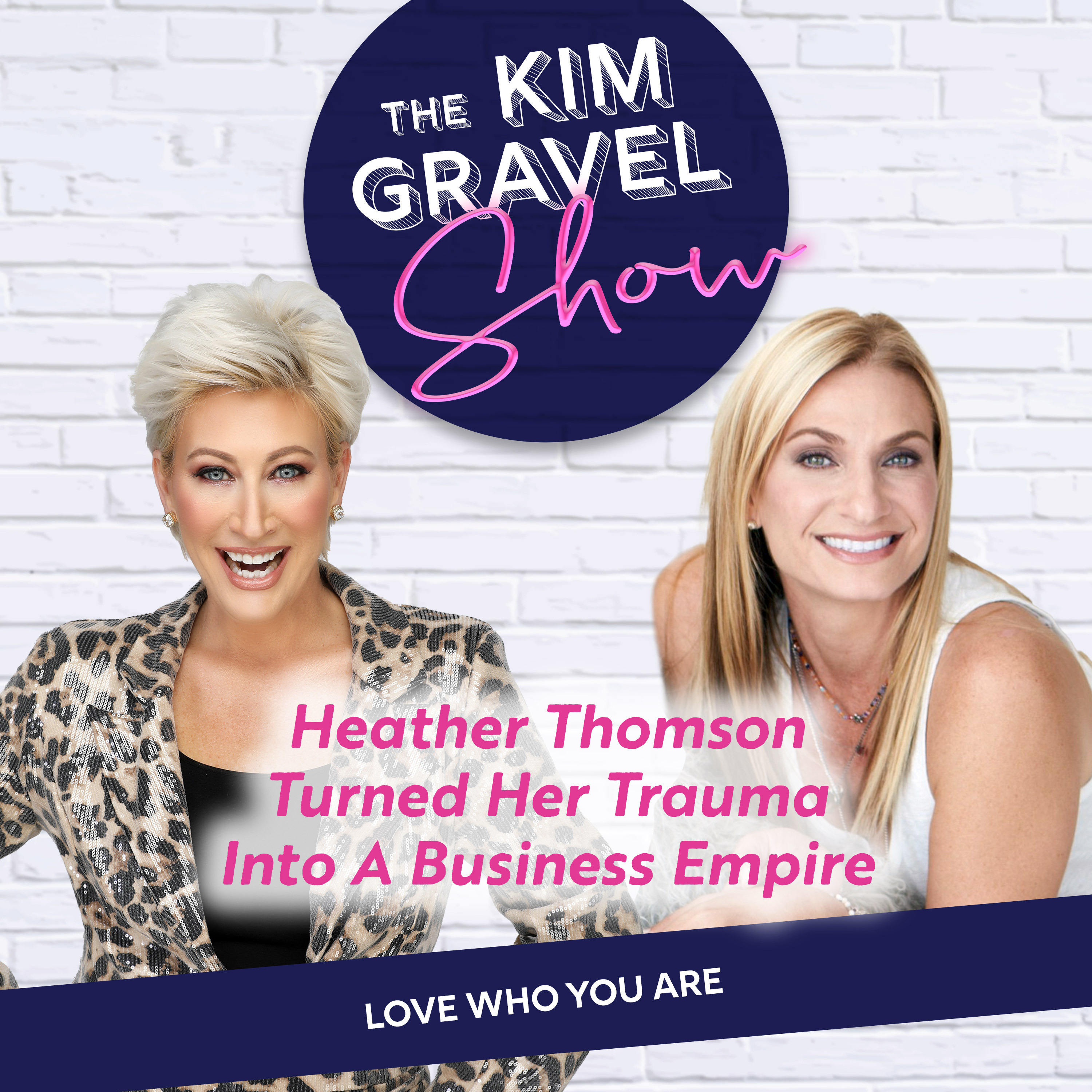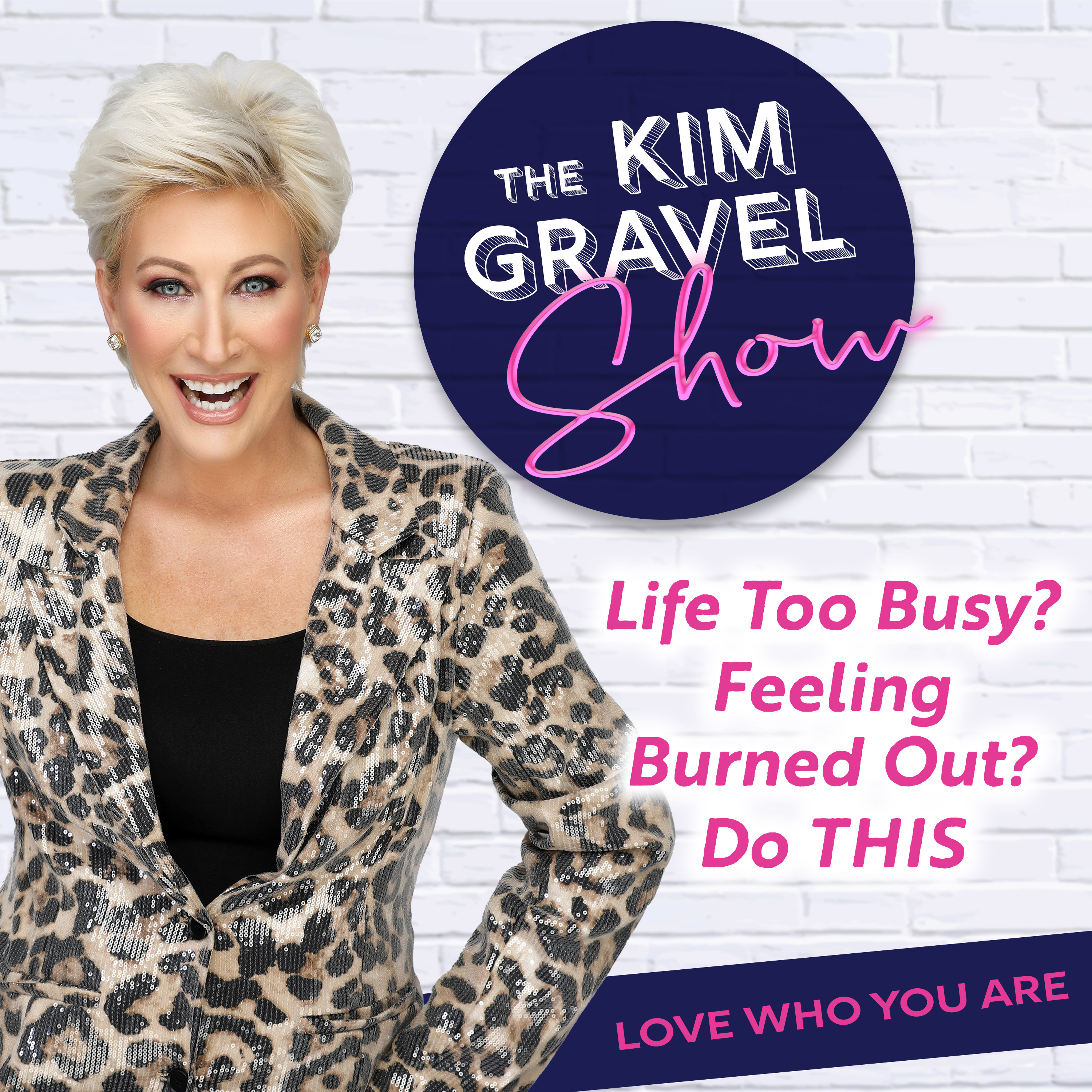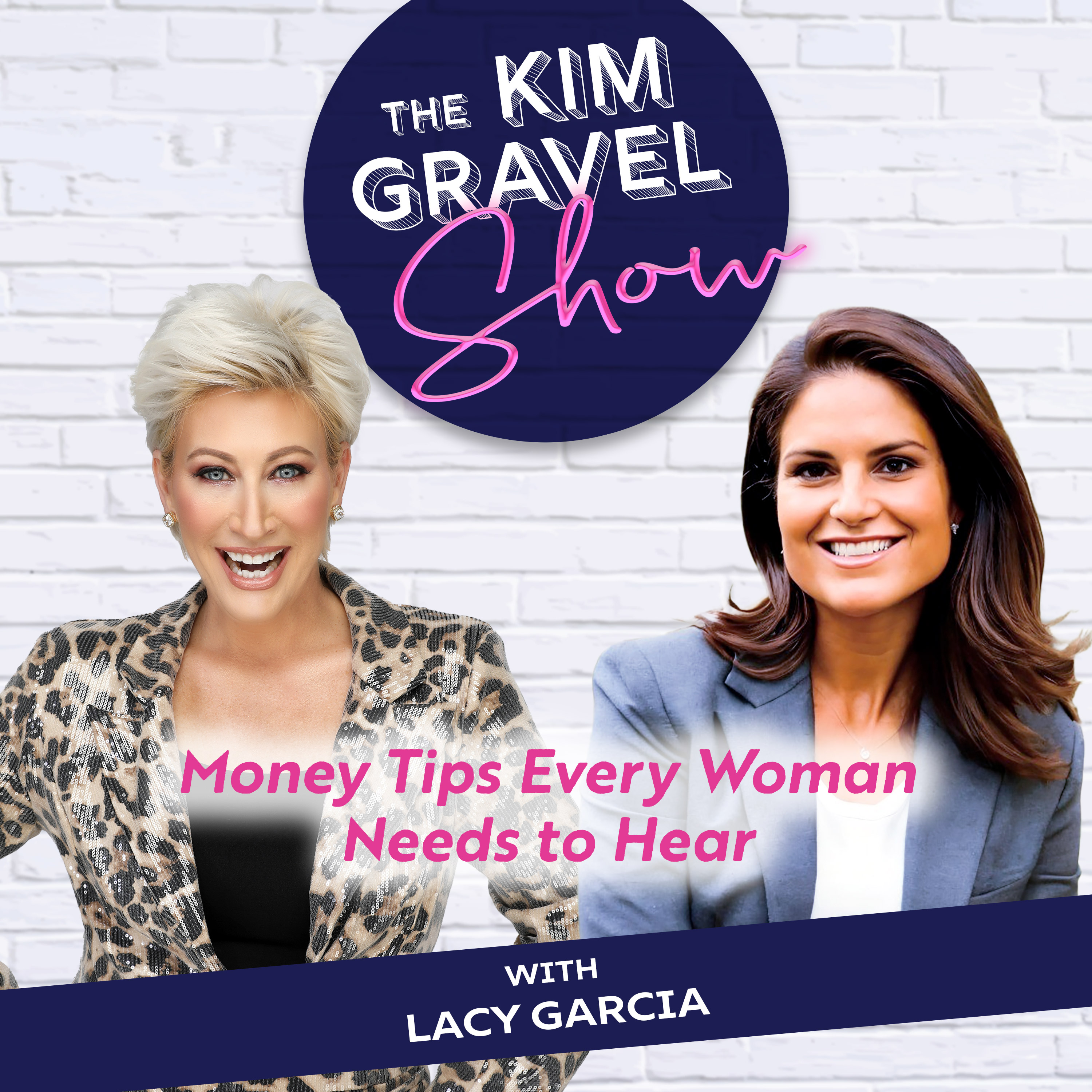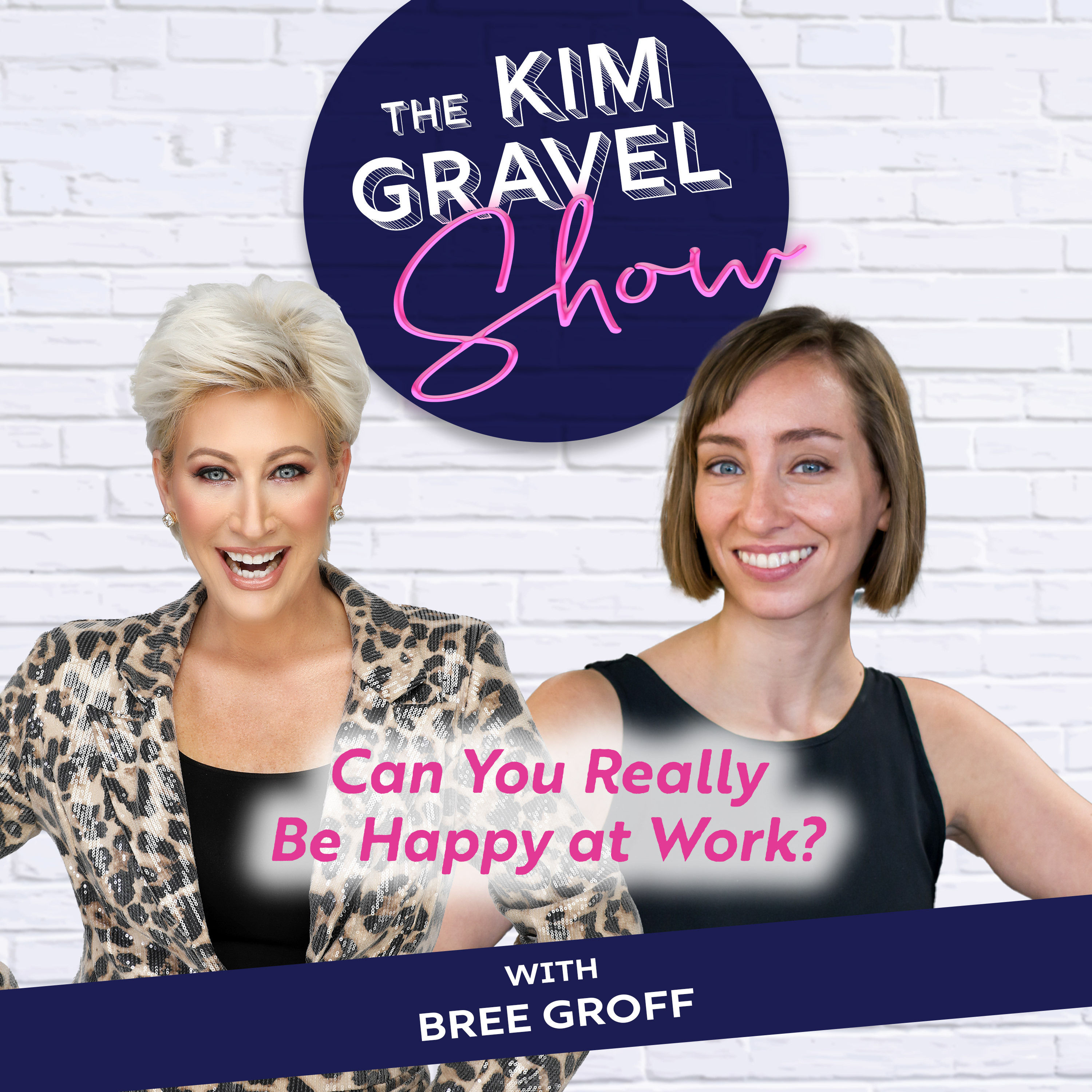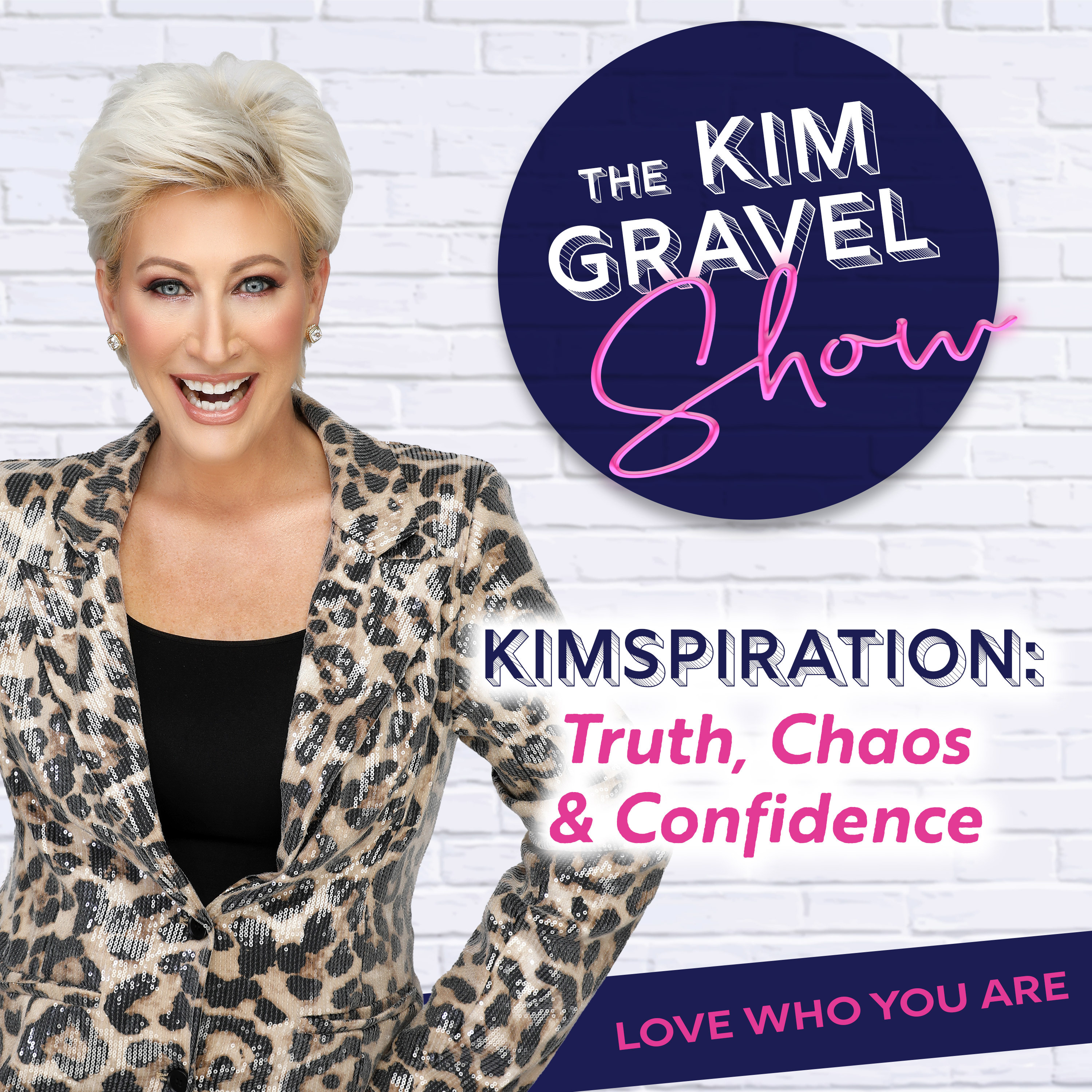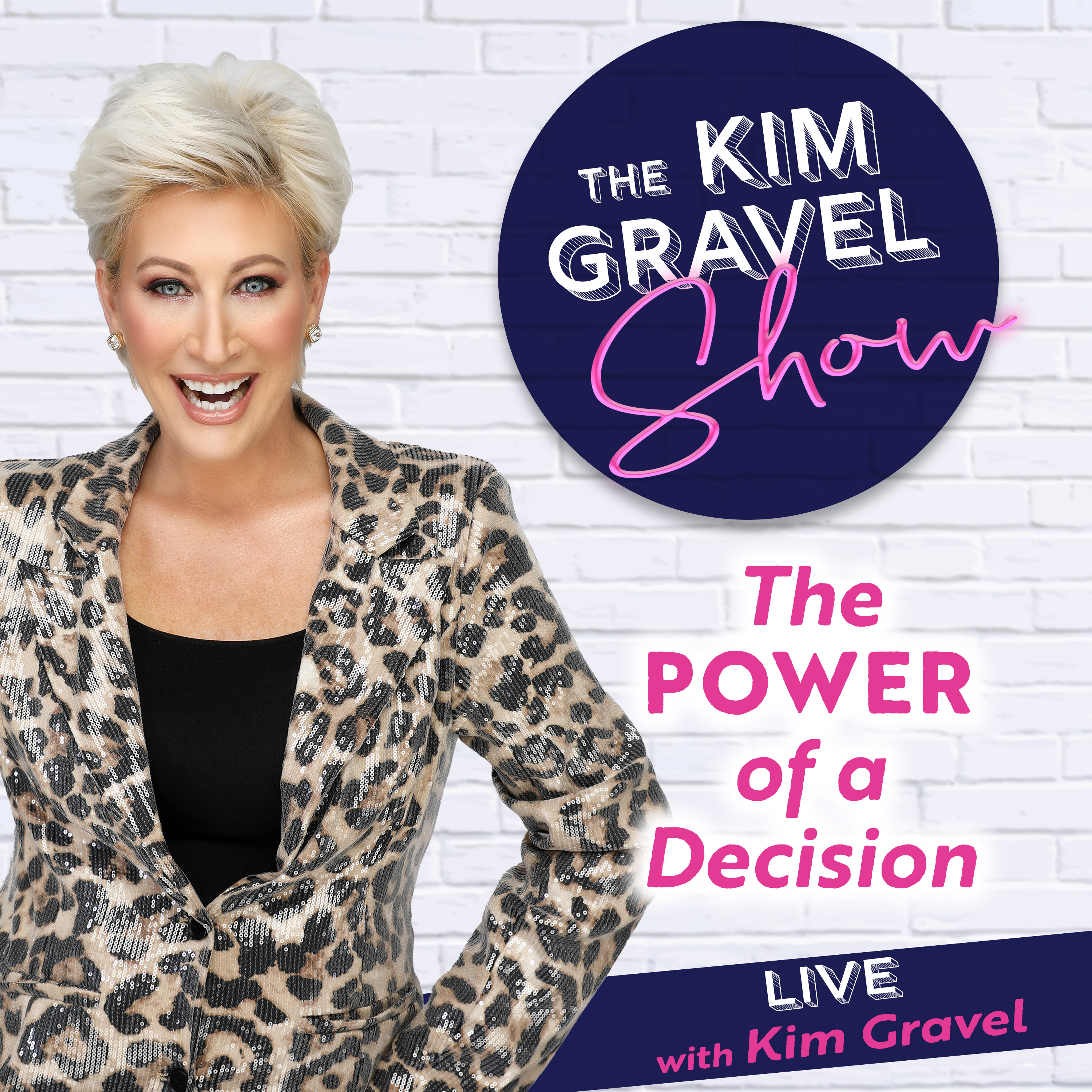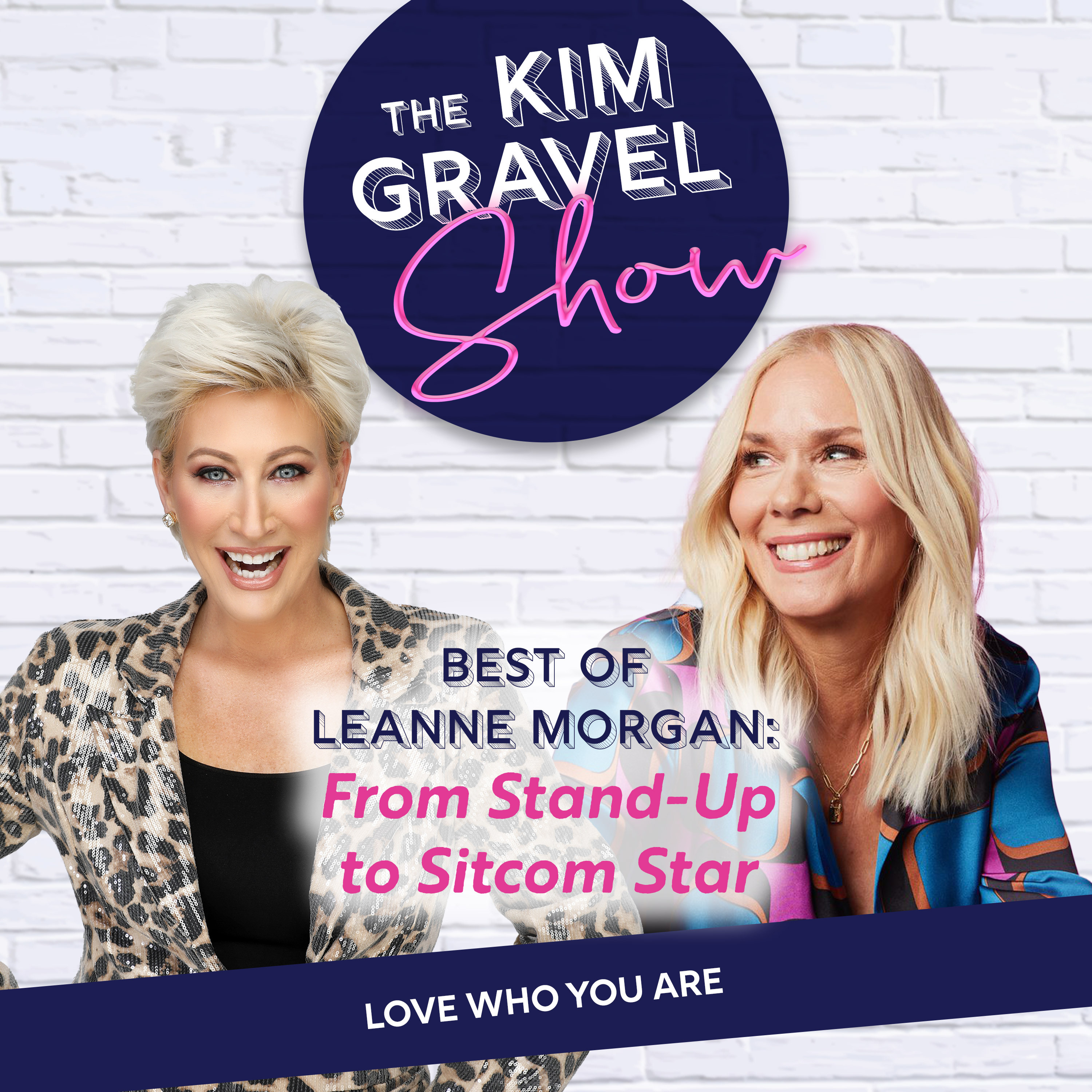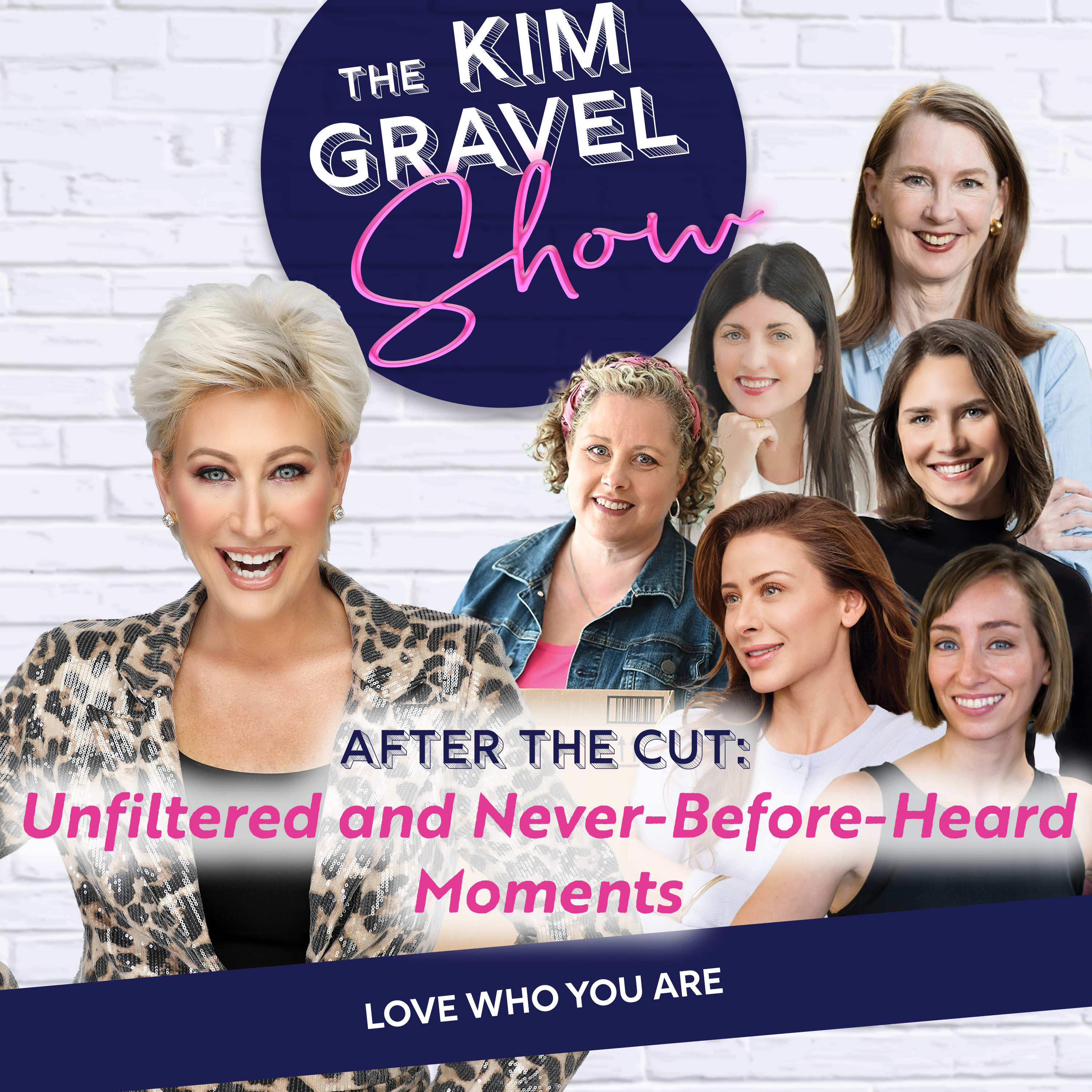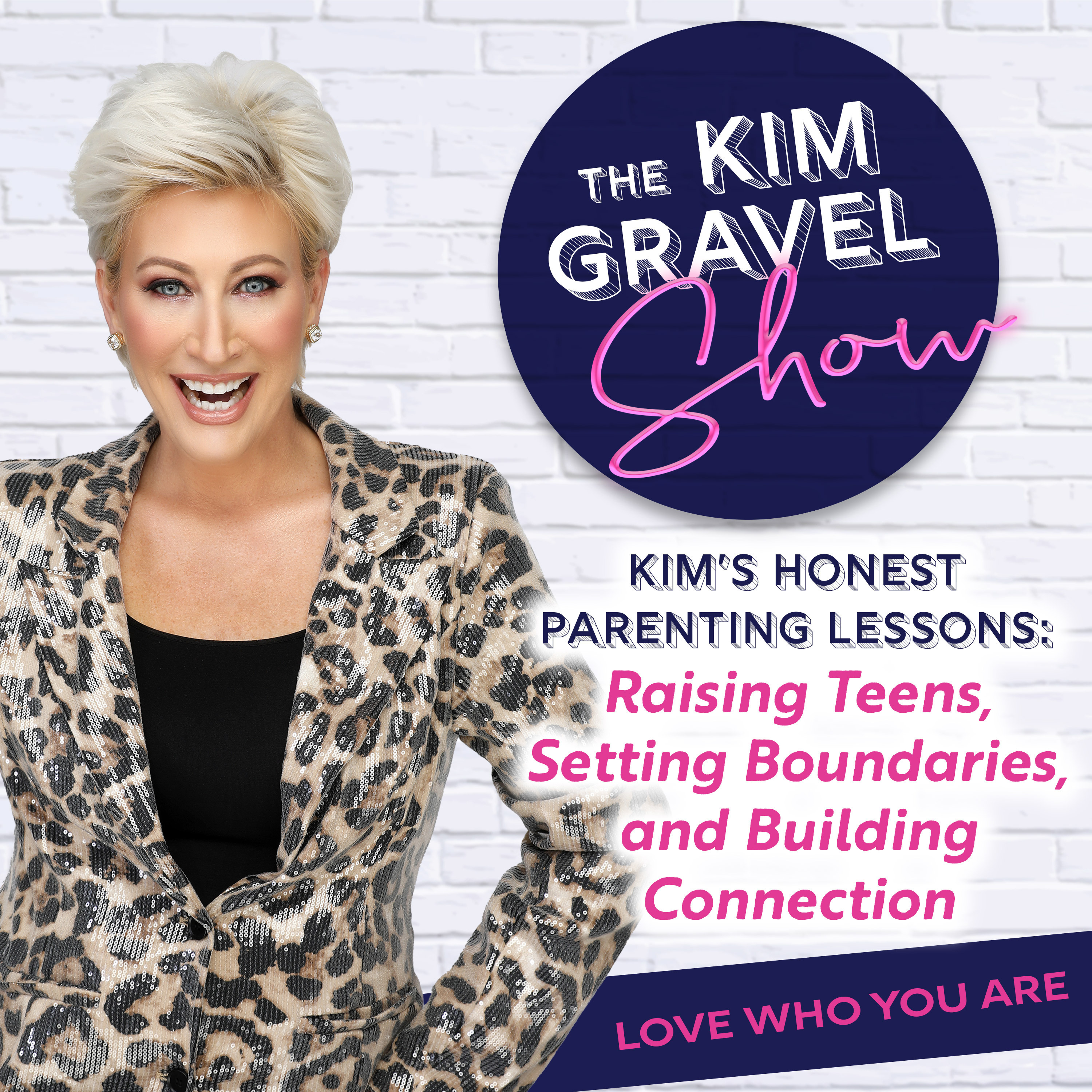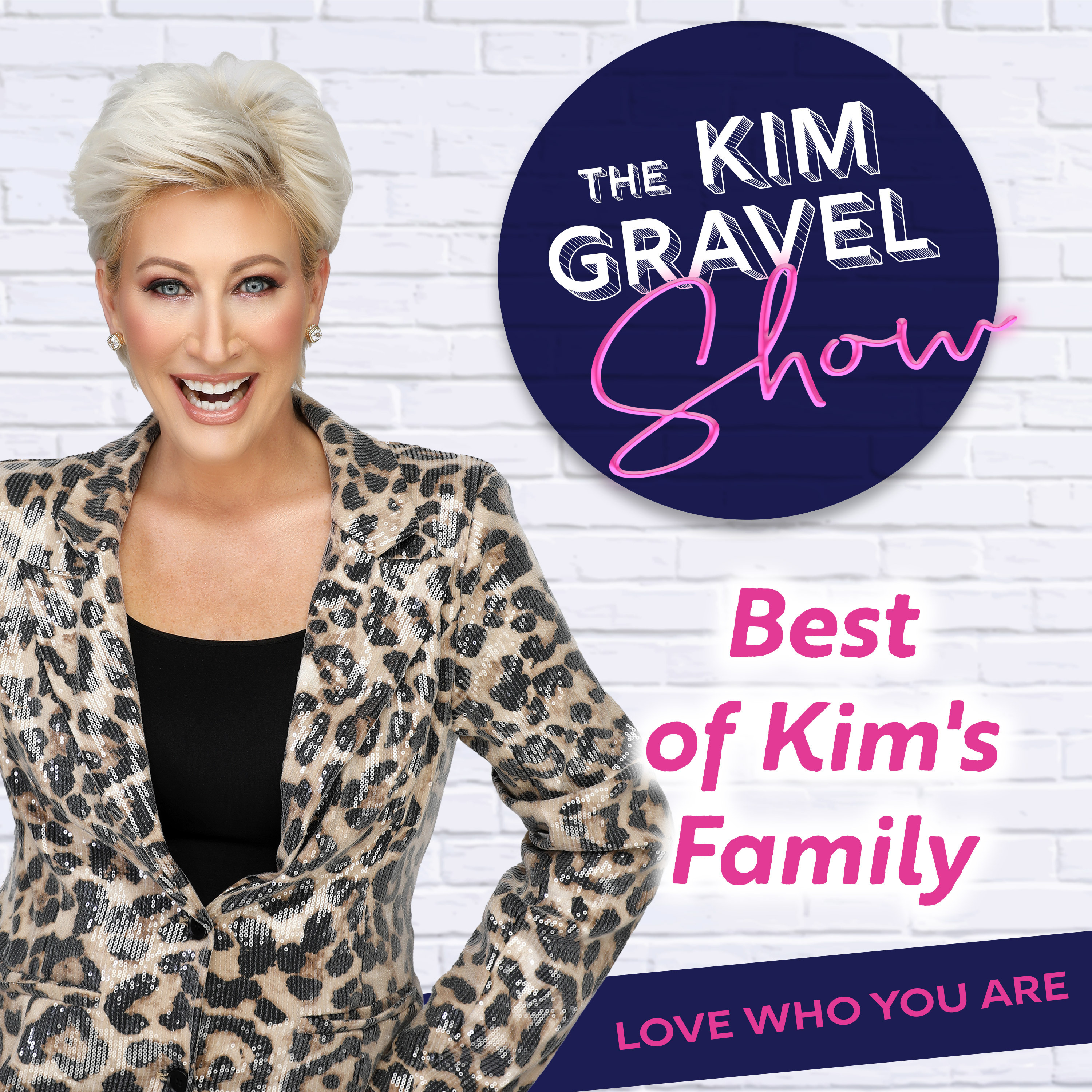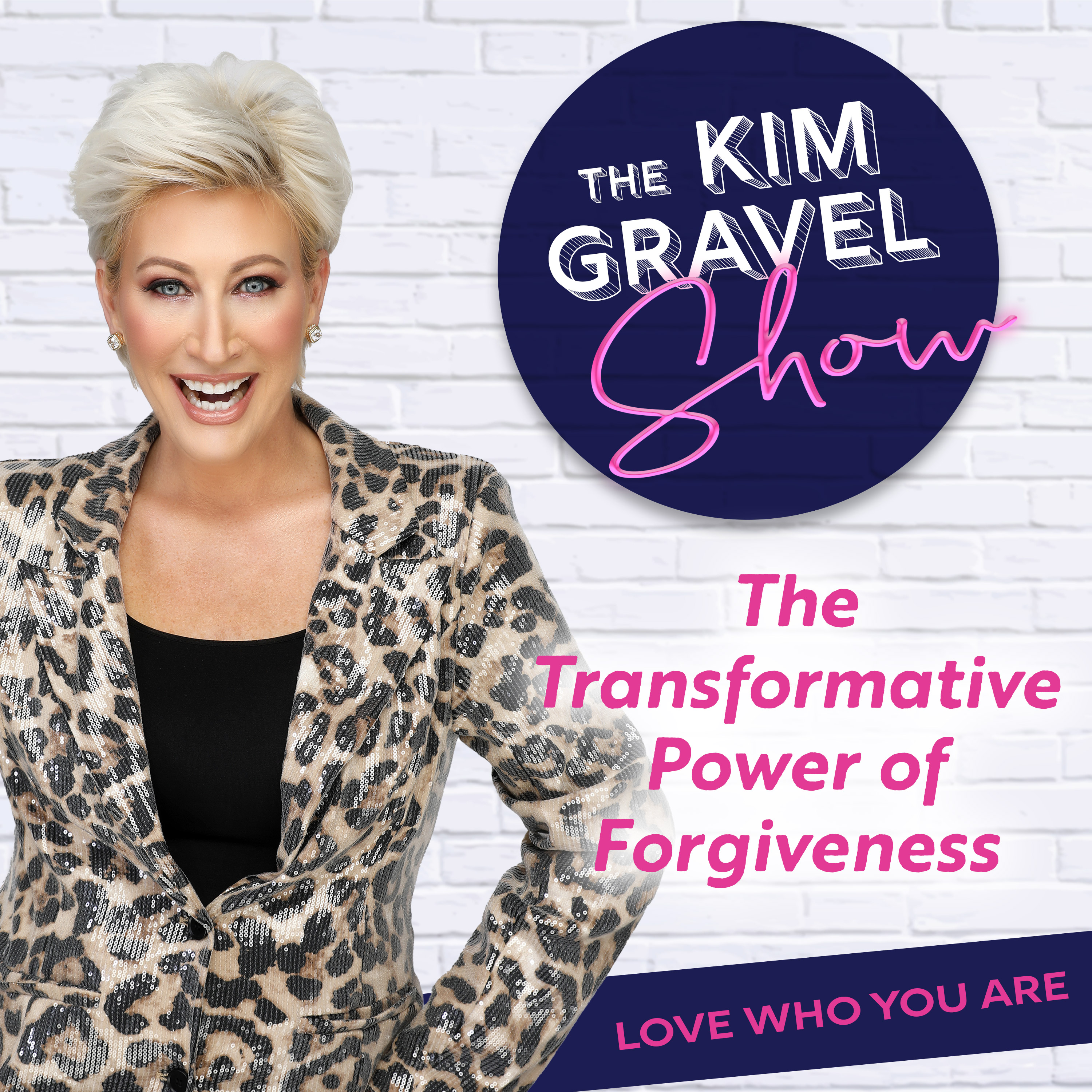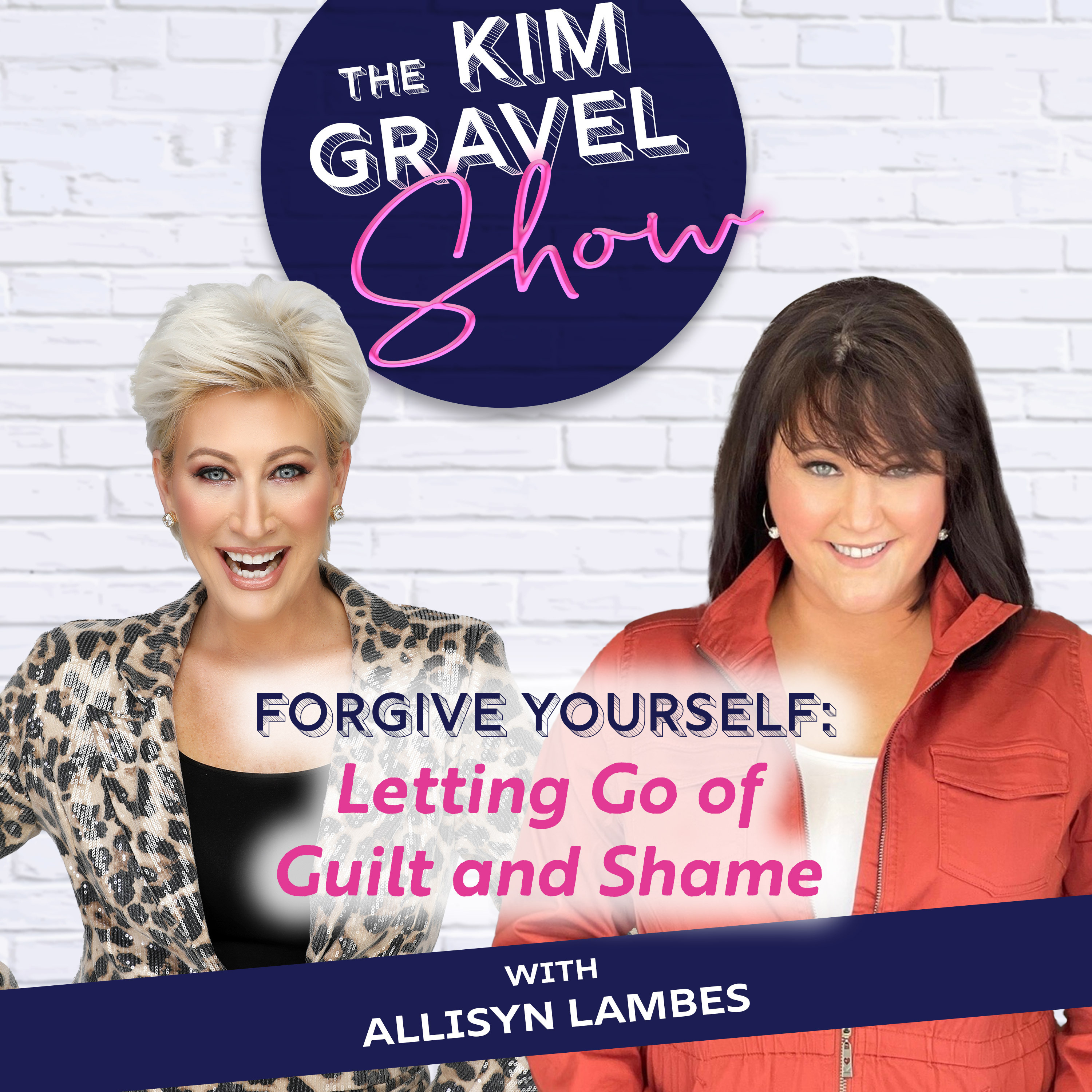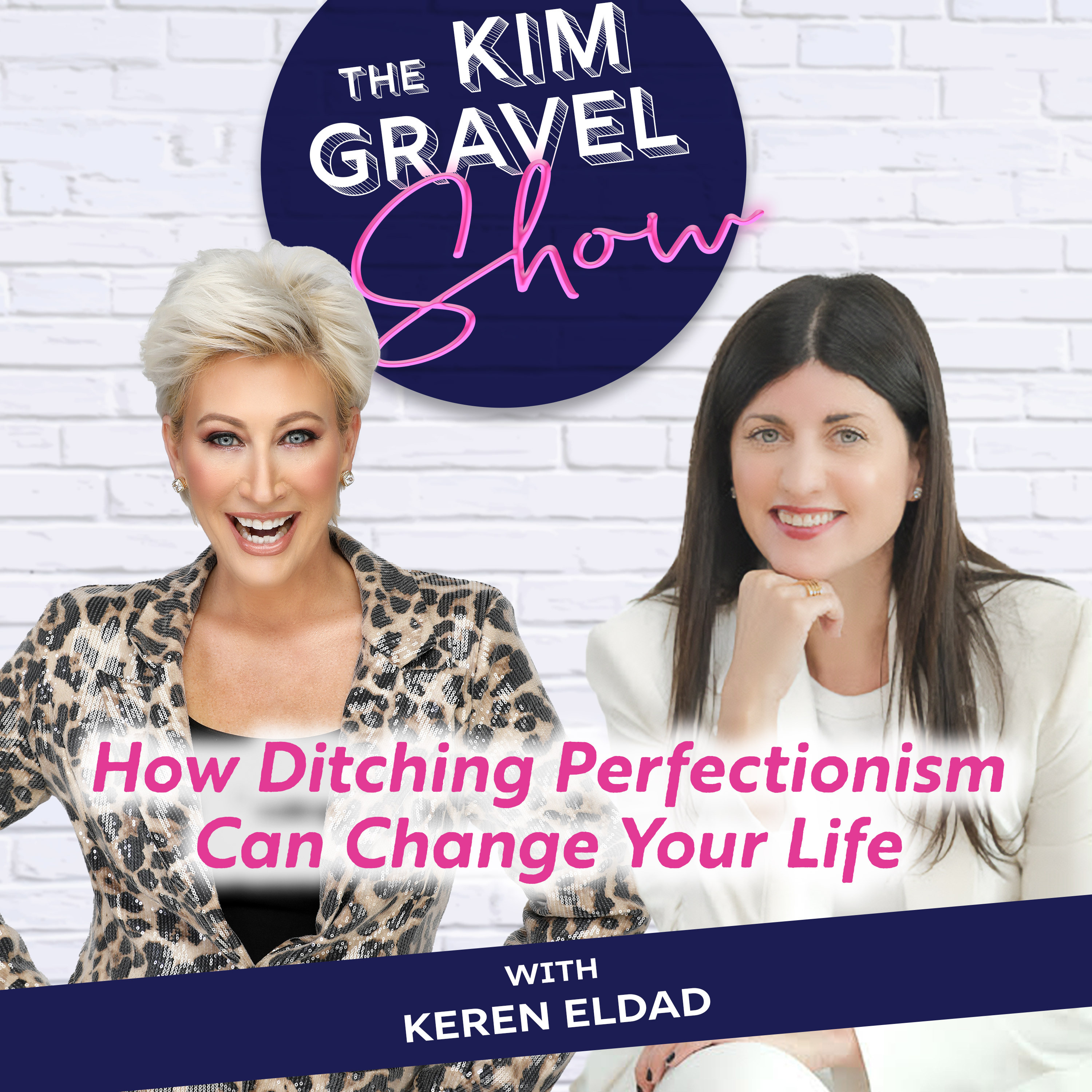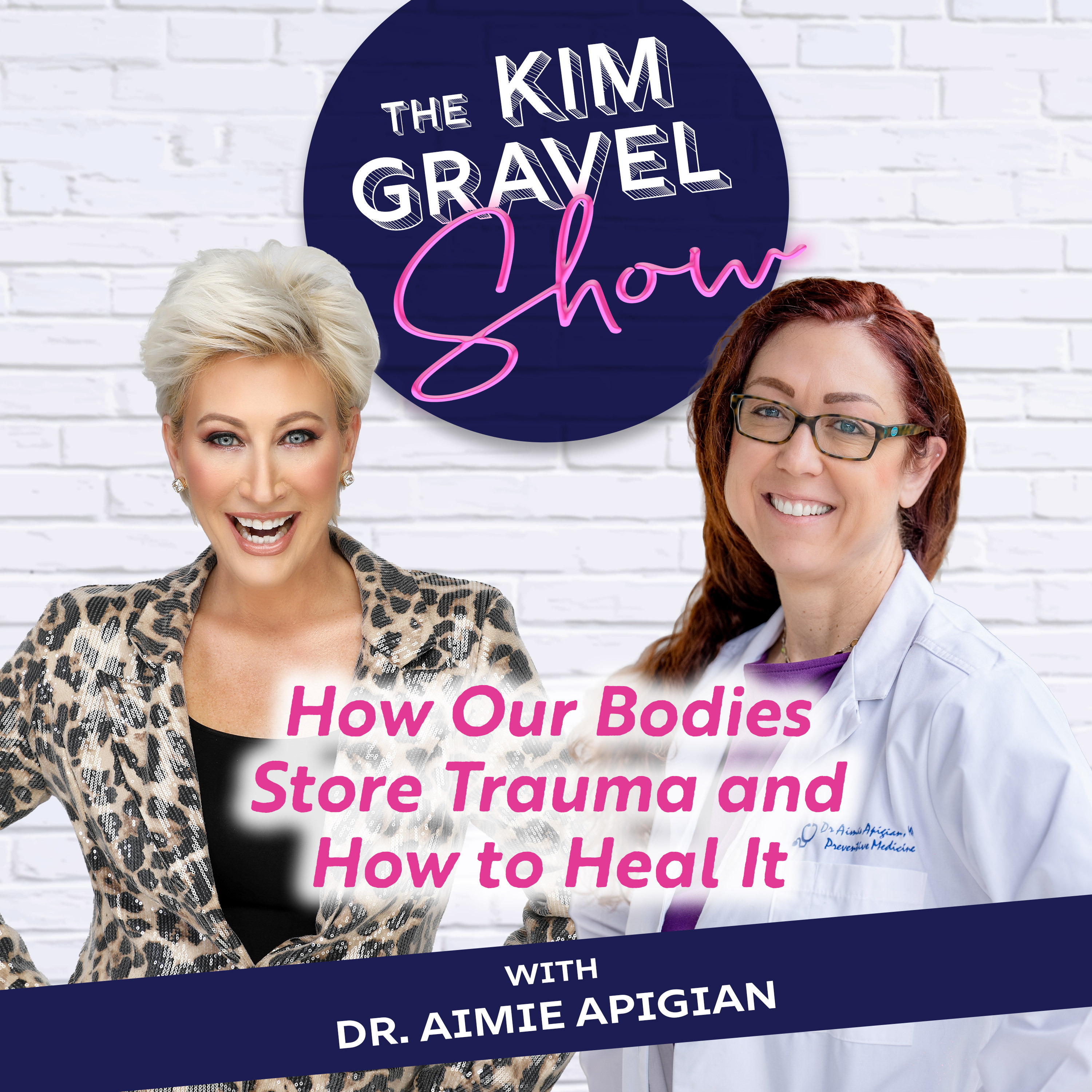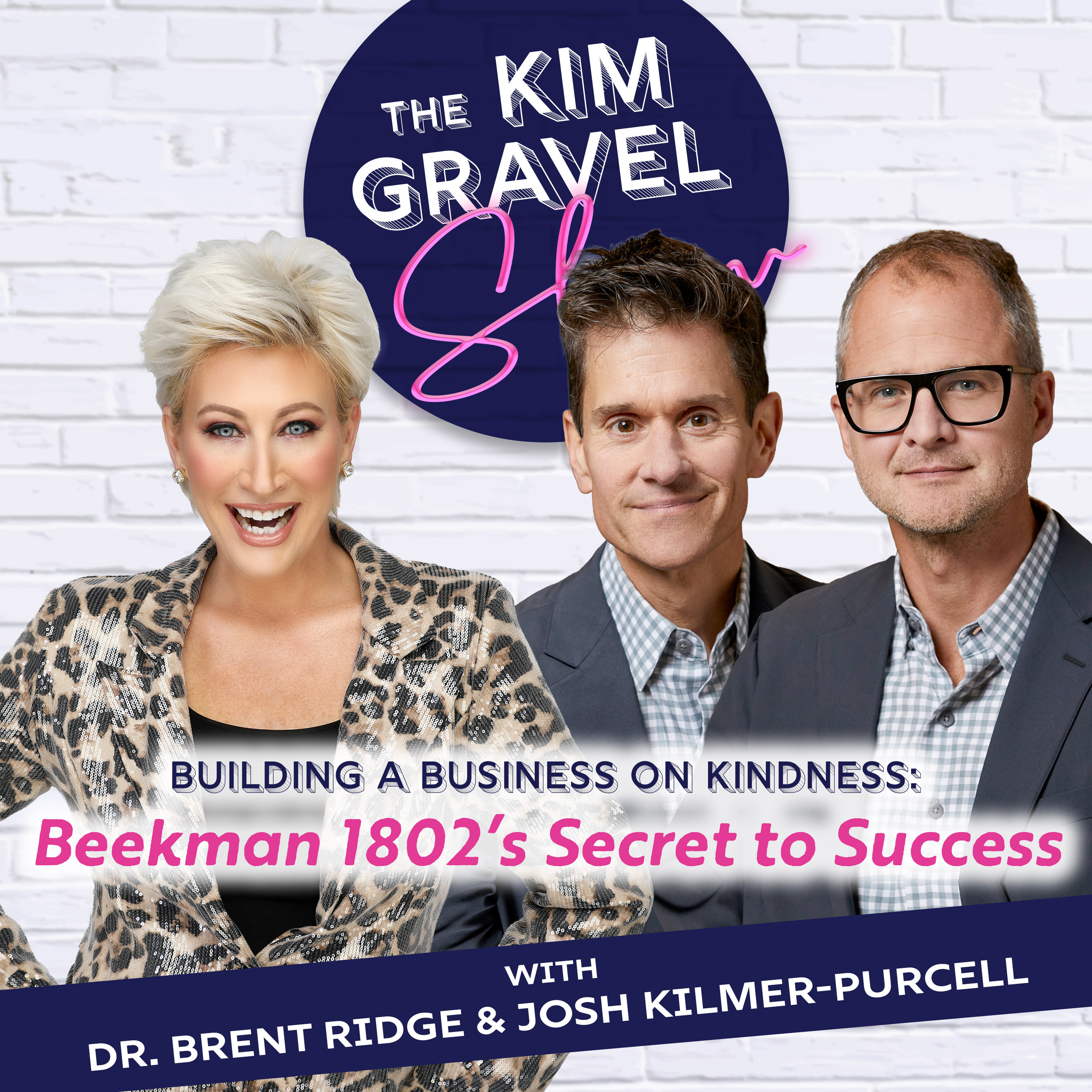You're Probably Dieting Wrong With Dr. Naomi Parrella

If you’re tired of all the diet fads, then you need to hear this weight loss expert explain why intermittent fasting is different. It worked for me, y’all.
This week my guest is Dr. Naomi Pareella, MD. She’s a weight loss and longevity expert who is the Chief of Lifestyle Medicine at Rush Univ and Chief Medical Officer at Zero.
In this episode:
· My focus on longevity and long term health
· We bust some major dieting misconceptions
· This is the diet I did to lose my weight last year
· Why intermittent fasting works
· The importance of sleep, stress, and hormones on weight loss
· Dr. Naomi’s expert take on Ozempic (I’ve never heard this before)
· The important role of human connection
· The incredible power of oxytocin and the healing power of love
You should check out Dr. Naomi's app, Zero Longevity.
Here is my favorite quote from this week's episode:
"Eat less, exercise more is not necessarily the answer, even though that's been what we've been told forever." - Dr. Naomi Parrella, MD
Do you want to hear your voice on the show?
Call me and leave me a voicemail at 404-913-6460 and let me know why you love who you are!
There is BONUS CONTENT in our free newsletter so make sure to subscribe at https://www.kimgravelshow.com
Collecting Confidence, my best-selling book is now available in paperback with a brand new discussion guide!
Click this link to buy it now
Join my Love Who You Are movement at https://lwya.com
Connect with Me:
Connect with Dr. Naomi Parrella, MD:
New episodes of The Kim Gravel Show drop every Wednesday at 6pm EST.
Support our show by supporting our Sponsors:
FACTOR is America’s #1 Ready-To-Eat Meal Kit. You’ll save time, eat well, and tackle everything on your to-do list this summer.
Head to https://www.factormeals.com/kim50 and use code kim50 to get 50% off your first box! Plus get 20% off your next month while your subscription is active!
*This transcript was auto-generated*
Introduction:
This is The Kim Gravel Show.
Kim:
We're talking about dieting, health, and longevity.
Dr Naomi Parrella:
Eat less, exercise more is not the answer.
Kim:
There's a lot of people listening saying, what do I do?
Dr Naomi Parrella:
So if you understand the hormones, then you can master your weight for long term.
Kim:
We come into the world chubby, and most of us go out of the world chubby once in a while.
Dr Naomi Parrella:
Throw a little drama in there.
Kim:
Did she just say, throw a little drama? Doctor Naomi, are we best friends? Hey, y'all. Kim Gravel here. And welcome to the Kim Gravel show. This week is going to be probably one of my favorites, because this topic I am obsessed with right now, because we're talking about dieting, health, and longevity. Yeah, I said it. Longevity. Long living. Okay? And I know all of you have questions about that.
Kim:
My guest today is Doctor Naomi Parrella, y'all. She's the chief medical officer at Zero Longevity science, and their mission is to extend the lifespan and the health span of everyone in the human race. That is a big, big mission, but one I could definitely get behind. She's a double board certified in family medicine and obesity medicine. She's the chief of lifestyle medicine at Rush University. She has worked as a consultant for the NFL, United Airlines, and Google. I'm telling you, this woman knows her stuff. And before we bring her on, Zac is making me say this, and I'm gonna blame this on you, Zac.
Kim:
Naomi is a doctor, but she's not your doctor, okay? So nothing in this episode is medical advice. This is a podcast, y'all. So it's for general informational purposes only and to just maybe, hopefully inspire you to pursue that health goal and to have that long life that is full of just possibilities. But before you can start a new health plan, be sure to consult your doctor, but get all the good advice that our good doctor is getting ready to give us right now. Join me in welcoming Doctor Naomi Parrella. Doctor Naomi Parrella.
Dr Naomi Parrella:
Oh, my gosh. Wow. I'm so excited. Thank you so much. That was awesome and super fun. Definitely. When I do, like, grand rounds at the hospital or whatever, we don't have that kind of intro, so that is super awesome.
Zac:
We'll give it to you. You can have that play when you walk in.
Dr Naomi Parrella:
That was surprisingly wonderful. So thank you for that. I'm super excited to be here.
Kim:
No, you cannot be more excited than Zac and I, because this. I'm over 50. I'm 52. Getting ready to be 53 next month. I am part of this age of possibility tour that's going on right now with QVC, where we're celebrating women over 50, longevity. Okay. So dieting was great for me, doctor. I lost, like, 50 pounds.
Kim:
But now I'm into the longevity thing. Okay, so I wanna get into that. Can you tell me? I just want to get into it. The thing I hear all the time is that you need to be healthy. You need to eat less, you need to move more.
Dr Naomi Parrella:
Let's clarify. Healthy can mean a lot of different things for a lot of people. And eat less, exercise more is not necessarily the answer, even though that's been what we've been told forever.
Kim:
I was getting ready to go, woo.
Dr Naomi Parrella:
Yeah, totally, totally. So I remember for years, I was telling people, eat less, exercise more. I had no idea that this information was completely not helpful for the majority of people.
Kim:
The whole prescription for being healthy is not just to eat less and move more. Is that what you're saying?
Dr Naomi Parrella:
Exactly. So eat less, exercise more is not the answer. And the reason is, if you eat less, you might not be getting the nutrients you want. It doesn't actually necessarily cause long term weight loss. It affects your hormones. There's a whole bunch of stuff there, right? It's actually eat right and keep moving. That's really what it is.
Kim:
Eat, Zac, that's really different.
Zac:
Can I just say, like, what does that eat? What is eat?
Kim:
Right?
Zac:
Because that, to me, like, I don't know what that. I'm so confused. There's so much information out there, right? Am I right, Kim?
Kim:
I think she's saying not go through the drive through at the fast food three or four times a week. I think that's what she's saying.
Dr Naomi Parrella:
Well, you both know that the ultra processed food industry, right, where the foods really are not something you can create in your own kitchen, those foods have a different effect on the body than what we call whole foods, which are really things you could imagine how it got to your table, right? So those kinds of foods that you can't really recognize where it originated, how it actually got into the shape or style that it's in, those are not really real foods, right? So they throw off your hormones. And, you know, Kim, to your point about being over 50, me too, actually. I need to take notes from you because you're looking so darn good, so.
Kim:
But the struggle is real. The struggle is real, doctor.
Dr Naomi Parrella:
It is real. And, you know, when you reset your body, as you've described, I mean, you know, more than 50 pounds, weight loss, congratulations. That's really a side effect of getting into a healthier state, right? So you can lose a bunch of weight, and it can be unhealthy. Like if somebody has cancer and is going through treatments, that can be not really fun kind of weight loss, but the kind of weight loss where you have more energy, you feel great. Now you're like, now I want to get healthy. Now I'm about longevity. That's what we're talking about. And if you're not eating real food, meaning foods that are more natural and closer to how they originated, your body is going to be confused.
Dr Naomi Parrella:
It's going to have to spend energy on trying to figure out what to do with the things you just put in your body. And oftentimes, any toxins, any things that your body doesn't know what to do with, it has to store it. And if you have too much of something, it's also going to store that. So that's where we start getting into trouble.
Kim:
I love your take on this. Cause I've heard you say that weight gain isn't a discipline problem, it's a hormone problem. And I want to just shout, hallelujah. Amen. I second that, because when I hit premenopausal and menopause, and I'm sorry for oversharing, Zac, just deal with it. I did see. I did see a change in not only my weight. Cause I've always had about 40, 50 pounds that I needed to lose over the last decade.
Kim:
But I mean, seriously, I've been premenopausal and going through menopause for, like, ten years. Is that, is hormones really the problem?
Dr Naomi Parrella:
For most of us, it totally is. So if you think about it around menopause, your estrogen really is what goes away in menopause. Right. And also progesterone. But your estrogen goes away, and estrogen is what gives us female curves. So when we're gaining weight, we sort of gain it in kind of like a figure eight, sort of a pattern, right. It can be up on your chest and on your hips and your butt. Right.
Dr Naomi Parrella:
And we're all trying to always lose all of the, you know, and whatever. When you don't have estrogen anymore, the weight that you're going to gain, if you are going to gain weight, will end up distributing just like in a man. So that's around the waistline.
Kim:
Wow. Okay. I've never heard that before.
Dr Naomi Parrella:
Yeah.
Kim:
So do we fix the hormones? We fix the weight, or are they sympathetic or they work together? I mean, what is. How do I. Because there's a lot of people listening saying, okay, it's not a discipline problem, it's a hormone problem. What do I do?
Dr Naomi Parrella:
Right, exactly. So if you understand the hormones, then you can master your weight for long term. And here's the thing that's really, really wonderful. The more you get in the right direction, the easier it gets and the more fun it is. Right. Because you're like, oh, I feel great. I have to get rid of all my clothes that I didn't like anymore, and now I get to get new clothes or fit back into the stuff I used to wear. So it's really, really fun.
Dr Naomi Parrella:
And so just by changing a few things, you can actually start changing the balance of hormones because they all affect each other. So it's kind of like you just move one dial and that starts having a ripple effect in other areas. So it is so much fun when you figure out, oh, this is the one thing that's easiest for me to change, and I'm already starting to see a change.
Kim:
Okay, what's the dials? Give me the dials.
Dr Naomi Parrella:
Yeah. So some of them are around nutrition. So you might have heard about insulin, and insulin is a hormone that's hormone, yeah, of course. And insulin is a hormone that's like a growth hormone. So it makes you grow and it tells your body to store things and put fuel into cells. And so if you are physically active, you're working out all the time, you're going to do a great job building muscle if you have high insulin. But if you have high insulin and you are not in the gym twenty four seven and you are possibly working or having a different kind of a life where you're busy doing other things, it's very possible to get into fat storage mode, which is what the majority of us are not living in the gym. And so that's the effect that can have.
Dr Naomi Parrella:
That's a high insulin level can cause that. Once you start gaining weight around your waist, then it gets even easier to start gaining weight. Right. So many of us have noticed, wow. You know, I could eat whatever I want when I was younger and I didn't gain so much weight, I was more in control. I could just get it back the way I wanted it. And then as we get older, we're like, hell, it's not as easy as it was before. Right? Like, what's going on?
Kim:
So true. It's so true. Yeah, it's so true. So is that the hormones and the insulin.
Dr Naomi Parrella:
Correct. And insulin is a hormone. Okay. So as the progesterone and estrogen start coming down, you become insulin resistant as you start gaining weight around the waist so it's sort of like this vicious cycle, and it can make everything just feel worse. The hot flashes, the disrupted sleep, you know, the mood changes, all of that. That's totally natural.
Kim:
Is that the same in hormones for teenagers? Because my kids, first of all, they could eat anything. That's nothing. Nail down.
Dr Naomi Parrella:
Yep.
Kim:
And, you know, both of them have put on some weight because they're not eating the right things, but. And they. And they're both athletes, so they work out, work out, workout constantly. But is it, is it the same thing for hormones in young people as well?
Dr Naomi Parrella:
Yes. So for young people, their bones are still developing, so they do need to have times when they're going to have those higher hormone levels so that they can reach their peak height, that they can grow their muscles and bones. And so it's a little bit different. But, yes, hormones still drive that as well. And, you know, that's a great example. Kim, I'm so glad you brought that up, because if you think about it, if you look at young people, their body knows, like, it knows how to grow, right, and where to put on the weight. And so it's all driven by hormones. And so if we can master the hormones once we're done getting taller, we can prevent that.
Dr Naomi Parrella:
The width getting bigger. Right. So this. Yeah. So adolescents have a little bit more leeway if they're still getting taller. Right. We've seen that. I mean, you totally recognize that.
Dr Naomi Parrella:
And, you know, cute little, you know, babies that, you know, are nice and round and they're not gonna be that way forever, necessarily.
Kim:
Yeah. I say we go, I say this all the time to my friends. I'm like, we come into the world wearing pull ups, and we go out of the world wearing pull ups. I mean, we come into the world chubby, and most of us go out of the world chubby. But this is what I wanna ask you, too. What other factors affect weight? Like, from one to ten, how important are each of these things? Like sleep, stress, working out. Like, let's just take sleep. How important is sleep to maintaining that healthy weight and that longevity?
Dr Naomi Parrella:
Like a ten, right? So it's like a ten out of ten. It's so important because here's the deal. There's several factors with sleep. If you don't get enough sleep or it's not restful, you're going to develop insulin resistance. So it's, again, kind of the same thing, right, where it becomes easier and easier to gain weight around your waist. And then it's a vicious cycle. It gets easier and easier to gain weight. So that's for sure.
Dr Naomi Parrella:
If you have sleep apnea and it's not treated, also, same thing. And in addition, it can increase your risk of stroke and other things. If you get great sleep, that reduces the stress hormones during the day, it allows the insulin to come down. So you get into a fat burning mode. Right? So that's pretty cool. You wake up in the morning and you're a fat burning machine. Like, yes, please. Right? No effort.
Kim:
Hello.
Dr Naomi Parrella:
So my gut gets to reset. It's just so, so powerful. So by the morning, you're really like starting a brand new day. And it's so fantastic because even if you did not make the best choices the day before, after a restful night of sleep, that next day, it's like a recharge. You start over. It's like a restart.
Kim:
You reset. What about stress?
Dr Naomi Parrella:
Stress is really a normal human response. We have to have stress in our life. That's what helps us to grow and develop. Stress in and of itself is not terrible. It's actually important. Otherwise, we just sit around and do nothing. If there was zero stress to do things. But because of the stress, it forces the body to change, it forces the brain to change, it forces the hormones to respond.
Dr Naomi Parrella:
And stress hormone cortisol, many people know about that, right? That's a really, really important hormone for us. And some people don't have enough of it. So they might be given medications like prednisone because they don't have enough steroid, the steroid cortisol. So stress is important. The problem is hormones are supposed to cycle. They're not supposed to stay high. And just like, if insulin stays high and people start gaining fat mass around their waist, if cortisol stays high, that's a problem. So let me explain what cortisol does, because cortisol is stress.
Dr Naomi Parrella:
Okay?
Kim:
Okay. Okay.
Dr Naomi Parrella:
So cortisol melts down all the tissues in your arms and legs, and that's your muscle, your fats, your glycogen stores in your muscles. It melts all those tissues down so that you have a lot of all those building blocks and fuel sources in your bloodstream. Okay, so you could fight a lion, right? Because that's high cortisol. You're going to go fight a lion. There's some stressor, there's something you're going to need to have extra energy for. So your body then moves.
Kim:
Is that the fight or flight? Is that the fight or flight thing we talk about? Okay, totally.
Dr Naomi Parrella:
I'm tracking right in that area. And that's really like adrenaline and noradrenaline. But these hormones then melt everything down, put everything in the bloodstream. Now, if you actually had cycling stress, meaning you have stress, you do something, and then the stress resolves or gets better. For example, you sleep, you meditate, you resolve a problem, you solve, you know, issues, then you're in a good space, right? The cortisol comes back down, your body redistributes. It's all good to go. Now, if the cortisol stays high, because, a, you don't have time to recharge, or you don't know how to recharge, or you need a coach and, you know, to help, just remind you to recharge, right. If you're in that state and your cortisol stays high, now, all that fuel that's circulating around doesn't get used because you didn't go fight the line.
Dr Naomi Parrella:
You didn't do the things that resolve it. And so that fuel has to get stored again. It goes through the liver. It can cause fatty liver, it can cause more weight gain around the waistline. And if you know anybody who's been on long term prednisone, they will start gaining weight around their waist, and it becomes very easy to gain weight. And that's what happens with chronic stress, which is different than the regular cycles of stress humans are designed to endure.
Kim:
Is sleep and stress. About a ten on the scale from one to ten, both of them.
Dr Naomi Parrella:
Absolutely. Absolutely. So I might hear somebody says they're a caregiver of somebody who's sick or aging or small children, babies, right? And they say, I don't know what's going on, but I'm gaining so much weight around my waist, right? I don't even have time to, like, eat that much, but somehow I'm gaining a ton of weight around my waist. That's stress weight, right. That's okay. That's really hard. And that could be reversed.
Kim:
See that? I mean, I'm not throwing my sister under the bus, but, Zac, that's what's wrong with Allison. She has the bigger metal. She's gonna kill him. She's going to kill me.
Zac:
Doctor Nagy, what's wrong with Allison? I think that would be a really good tragedy.
Kim:
I'm saying, like, what you're saying to me is it really? I'm like, aha. She doesn't sleep well. She's under a lot of stress. She's a diabetic type one. She's not eating like she should, and I don't think she's eating when she should. Now, I want to ask you that question when you eat, because I'm going to tell you, just keep it 100% real with you. Doctor Naomi, I lost 50 pounds. It took me almost a year.
Kim:
It was like, nine and a half months from when I really started and said, okay, I'm gonna do this. And I did. I did not eat after six, and I did not eat until, like, noon the next day. So I did that intermittent fasting or that kind of, like, just fasting thing. Yeah, I cut out tons of stuff. But I'm telling you, my best friend just lost a bunch of weight. She did it, too. And my sister eats all hours of the night.
Kim:
Does that when you eat matter, too? Is that a ten?
Dr Naomi Parrella:
Totally a ten. I just love, love, love that you figure this out. Seriously.
Kim:
Well, it was all just like, I saw it on, like, you know, TikTok or something, and I was like, I'm gonna try it a minute. Fasting. I mean, I never.
Dr Naomi Parrella:
Okay, yeah, no, no, you figured it out. So it's so simple, right? And it's one of those things that takes a little bit of time to get really good at. So at the beginning, some people struggle with it, but one of the best things you can do, if nothing else, is give yourself an opportunity to build in at least 12 hours of not eating. Okay, if you can go 12 hours, if you can build up to 12 hours not eating, and that could be, like, while you're sleeping. Right? So to your point, if you stop eating at six, that means by 06:00 a.m. i, if you were really wanting to eat, you could. But if you actually hold out and a lot of people wake up and they say, you know, I'm just not hungry, but I know I should eat, I'm like, why? Like, if you're not hungry, why? You know, you can let your body fuel off your fat cells, right? Like, why are you doing that? So. So you're describing very well, and there's a lot of evidence actually showing that, especially post menopause, intermittent fasting is one of the most powerful and effective ways for long term weight loss and weight loss maintenance.
Dr Naomi Parrella:
So congratulations on figuring that out because it also simplifies life. Right.
Kim:
Well, I mean, this is gonna sound weird, and maybe this might sound a little crazy to the audience, but, you know, I'm a woman of faith, and I've always read in the Bible where they would encourage fasting. And I thought, well, you know, some of them fast for 40 days. I mean, what? I think Jesus fasted 40 days and 40 nights. So I'm just like, now I'm not going there, okay? I'm intermittent.
Zac:
I'm just getting back from the dead. So you can't.
Kim:
Well, that's true. That's true. Okay, but I just. I mean, there's no comparison. Okay, but I'm just saying, like, even like, those. The teachings from the bibles talk about fasting. Is it truly, like, you know, like, why is 12 hours the magic number? Like, how. How, you know, how long is too long? How, you know, what is, you know, is 14 hours better?
Dr Naomi Parrella:
Yeah. Yeah. So that's a wonderful question. So 12 hours is not a magic number, right. But it definitely clarifies for your body and your brain. Okay? These are eating hours, and these are not eating hours. If your body knows you're not eating hours, it can heal, it can recover. It can do the other things.
Dr Naomi Parrella:
Right. It doesn't have to spend energy trying to figure out what am I going to do with all these nutrients coming in through the intestines. You know, what do I have to do with this stuff? And so it allows your body to prioritize, repair, regeneration, so that you can thrive. Right. So that you can focus on things. One of the cool things that we know about fasting is it's been around, like you said, for thousands of years. Been doing this forever. This is the most evidence based way of taking care of ourselves.
Dr Naomi Parrella:
Right? So. And what's interesting is a lot of people say, well, I have to eat so that I, you know, my brain works, and so I don't get tired. But most people, when they fast, they report that their brain works better, that they feel like they sleep better, that their mood is better, they're more in control. Right. So I don't think we know what's the longest fast. You have to make sure you stay hydrated. If you're on medications, that would be a different story. Right.
Dr Naomi Parrella:
If you have other health issues, you'd have to be under supervision. But so far, there hasn't been a study that said this amount of fasting is, you know, bad for you.
Kim:
The magic number.
Dr Naomi Parrella:
Right, exactly.
Kim:
Well, and I will tell you. I will tell you. Like, it. When I started doing it, it was to lose weight. But now it is a routine for me, and it's helping me maintain my weight. But I have. I don't crave like I used to. I used to crave so bad, and I still eat, you know, pretty crappy a lot of the times.
Kim:
I mean, I keep it. Full disclosure.
Zac:
Let's just can you share some of the foods that you love to eat, Kim, with. With the good doctor so she can close up on her face.
Kim:
Okay. No, I'm just saying, like. Like, look, I'm just keeping it real with y'all. Like, people think, well, Kim, how are you eating? Is kale and, you know, crispy, you know, celery? I'm like, no, I do not. I eat a terrible. A lot of the times. I love burger King Whoppers. I love a big Mac.
Kim:
I love a dairy queen, you know, hot dog. I love scattered, smothered, and covered, you know, hash browns at Waffle House. I'm just telling you, doing this intermittent fasting, a, I don't crave it as much, and b, I can enjoy it. And then I'm disciplined and say, you know, that's enough. I'm going to eat half of that. You know, I mean, everything to me is about the routine. Now, is that important? Like, how important is creating a routine for your hormones and for your body, you know, in that longevity that we're all searching for?
Dr Naomi Parrella:
Yeah. So your body likes cycles and it likes routines. It also will adapt to changes, right? So you might have seasonal routines, just like there are certain religions that have seasonal times when they have fasts, right? Or certain things that they give up and things like that. So that's totally great. So what you want to do is you want to have a general routine, and then you're going to have deviations, or, you know, people might call them detoxes or whatever. So both ways, right. But what you're trying to do is make sure your body still can adapt and it doesn't get fixed in one way. You want flexibility.
Dr Naomi Parrella:
You want to be able to go in and out of fat, burn. You want to be able to have fasting times and not fasting times. So, you know, once in a while, gotta kind of break it up and, you know, throw a little drama in there. And that's okay. Your body's designed to make a snack.
Kim:
Did she just say, throw a little drama? Doctor Naomi, are we best friends?
Dr Naomi Parrella:
Totally. I'm having so much fun.
Kim:
I love a little drama girl. Who doesn't? You just got the whole audience to go, all right, Doctor Naomi is my kind of guy. Cause I will tell you, like, my best friend Amy, and I'm gonna throw her. And under the bus, she lost 80 pounds, and she works out like a freaking. Like you said, you work for the NFL. I'm like, she works out like a fricking linebacker on the Atlanta Falcons. I mean, she lives deadlifts and everything, and she just got stagnant. She just couldn't drop that last seven pounds that she was trying to do.
Kim:
And I said to her, I said, you should try the intermittent fasting. Cause she's pre menopausal. And I said, I'm telling you, it was a game changer for me. And she did. The first week, she lost three pounds. Three of the seven pounds. She didn't change a thing. She didn't change her eating.
Kim:
She didn't change her workout. That's all she did. So I am a firm believer in that. Firm believer. Okay, I've got to ask you about this. Cause this is the weight loss craze. You know what? I'm getting ready to go down. You know what I'm getting ready to ask.
Dr Naomi Parrella:
Bring it, bring it.
Kim:
What is it? What am I getting ready to ask you, doctor?
Dr Naomi Parrella:
You're gonna ask me about ozempic?
Kim:
Yeah. Cause there's a lot out there. I mean, people are losing a lot of weight, and I'm like, where has it been when I was doing this mess? Know where that has gone? And. But, like, what? Can we talk about that? I want you to either debunk it. Just tell me everything we should know about that. This, again, y'all, this is not medical advice to you personally. This is just informational.
Dr Naomi Parrella:
Yeah. So this is informational only. And I can tell you from taking care of the thousands of patients in our clinics and from the research. Okay, so I'll kind of blend a little bit. So these medications. So ozempic and wegovi are both semaglutide or semaglutide, depending on how you pronounce it. And then there's the medication called terzepatide, which is manjaro and zep bound. Okay, so those are the injectable once a week medications that people are raving about for weight loss.
Dr Naomi Parrella:
So the way they work is they signal both to your brain and to your gut. And when it signals to your brain, it sort of makes it like, you don't. You have enough. Like, you don't really, you know, you don't have to have that much of something. So if you had a trigger, food, it's. It becomes not a trigger. So it's not driving you to eat more and more and more. So people describe control.
Dr Naomi Parrella:
So one of the most common things I hear people say is, wow, this medicine really gives me control. Gets rid of the food, noise. Right. Those are the things we hear the most for the brain effect. Then there's the gut effect. And what it does in the gut is it slows down the movement of food through the gut. And so that makes you feel more full and more satisfied with less food because it's just going forward a little bit slower. Part of that process is it also affects the hormones, so it causes an increase in insulin.
Dr Naomi Parrella:
If you eat foods that would cause an increase in insulin, and it reduces the glucagon response, which is, again, all related to the hormones. But the major effect that people will notice is that slowing of the movement through the gut and that effect on the brain where you just feel like, meh, I don't need that much of that. Right. Just one bite was enough. So those two effects cause people to eat a significantly, much less amount of food, and then they start losing weight because they're eating so much less. Now, the thing to understand is, because the food is moving through so slowly, you have to drink a lot of water, because otherwise, as the food is moving through, it dries up, and then you have a brick, and then it's not going to move very well. And so you can have an obstruction or your kidneys can fail. So this is something that's really, really, really important.
Kim:
Water.
Dr Naomi Parrella:
Water. If you're on one of these medications. The other thing is, if you are on these medications, because you eat so much less, you are going to want to make sure that what you first start eating when you sit down are the foods you need to get. So, again, protein, vegetables, water. Right. Those are the things you just have to prioritize.
Kim:
So no Big Mac. So no Big Mac.
Dr Naomi Parrella:
Potato chips inside first. Right. Like, don't get full on the bread, which is not giving you the nutrients you need. Right. Don't have that. You know, so. So that's the important thing. Get your proteins first.
Kim:
Got it.
Dr Naomi Parrella:
Very, very important.
Kim:
What are the downsides? Do you even do? Are there downsides? And, like, you know, because I'm excited to see people really, you know, because you've got. Losing weight's got to be healthy for you, especially if you have a lot to lose. But I love what you said, your water tip. I've never heard that before.
Dr Naomi Parrella:
Yeah. So losing weight can be healthy if you lose fat mass. Right. The weight of fat. But if you're losing muscle, not so good. If you're losing bone, you're not so good. Right. So this is where the challenge comes in with these medications, because people eat so much less.
Dr Naomi Parrella:
If you are not exercising and you are not eating protein, you're going to lose muscle because exercise tells your body that you need to have muscle so that you can exercise, so it'll hold on to the muscle, it'll build muscle, maintain it, and you have to have enough protein, which is what muscles are made of, so that you can keep rebuilding as it breaks down. So the most important thing is to make sure you have a balance, right. So some people start these medications. They don't exercise. They're eating, you know, one Oreo. They're not having the protein. They lose muscle rapidly, right? So they lose weight. They're high fiving everybody.
Dr Naomi Parrella:
Everyone's like, this is so great. They are now making themselves frail and unhealthy and aging rapidly, even though they're losing weight because they're not prioritizing the protein in the muscle. Super important. There are also warnings. So, you know, anybody who's thinking about taking these medications, there's. They cannot have a history of medullary thyroid cancer in themselves or in their family. Multiple endocrine neoplasia, type two, which is a congenital, like, it's a genetic disorder. And they also would have to clarify with their physician if they've had pancreatitis before, any of those things would be reasons to really not take this medication because that would be very risky.
Kim:
Hey, y'all, I just wanted to give you a shout out and let you know that collecting confidence, my book that I wrote that it was a national bestseller, is coming out in paperback. So what that means is it was so popular before, and a bestseller before in that hardback, that they going to reprint it in a paperback version. And that's thanks to you for sharing that. Just want to let you know it drops on July 9, but you can pre order it right now wherever books are sold. The great thing about the paperback is it has some new content. Yeah, it really does. It has what we call a discussion guide where we walk you through exercises and readings. That's going to help you really collect that confidence.
Kim:
So go ahead, get the book. Wherever books are sold, it's the paperback version on July 9. You can pre order it right now and start collecting your confidence. Today, I want to talk to you about this longevity and this craze that we have.
Dr Naomi Parrella:
Yeah.
Kim:
In our world, to stay young and look young. And I'm all for it. Look, I'm all for it. Whatever you got to do, girl, to do, you do it. But this is what I want to ask you. What is truly longevity? What does that mean to you, doctor? And what can that look like in today's world? I mean, we live in such a medically advanced world, which is great. I think it's brilliant and it's wonderful. But what is longevity? What does that look like to you, and how do we get it? In a nutshell?
Dr Naomi Parrella:
Yeah. Yeah. So longevity, in my perspective, there's a lot of different definitions here, is we're talking about having the highest quality of life, being unlimited, you know, being independent for as long as possible. Yeah. And mentally, too.
Kim:
Mentally.
Dr Naomi Parrella:
Mentally, too. And, you know, we know the number one most powerful thing is actually human connections. So, Kim, just like you're, you know, connecting with so many people, every time people have a connection with another human, it lights up all parts of the brain, and that's very invigorating, and it tells the body to really thrive. And that's why studies have shown longevity studies, that it's about human connections that makes all the difference. And we know in many countries outside of the United States, life expectancy is a lot longer. Right? So, like in Japan, people live six years longer on average than in the US. That means that there's some room for us to get better at how we take care of ourselves. And they spend half as much money as we do on healthcare, and they live longer and have less disease burden.
Dr Naomi Parrella:
So there's something that we can really strive towards. It's not a dream. That's not possible. It's happening now in other parts of the world. Right. So this is where, yes, medical advances are really fabulous. Some of them are not necessary to expand our lifespan. Right.
Dr Naomi Parrella:
But things like fasting that we know happen around the world in all different cultures, that does work really well. And there's a lot of evidence to show that across multiple species as well. So this is something that is accessible to everybody, is free, and can really help us achieve that longer lifespan of health.
Kim:
Well, I gotta tell everybody listening, you are the chief medical officer for the zero app. And y'all, this is like a digital health coach. Can you tell us a little bit about that? Because you do cover the diet, you cover everything, but longevity is. That is the main goal for that app. Tell us what it's about.
Dr Naomi Parrella:
Yeah, so it really starts with understanding that it's what we do the majority of the time or the majority of the time that's going to make a difference. And we want to help make that as easy as possible for any single human person on the planet. And it doesn't cost anything to fast. We chose fasting as a way to help people achieve this. It turns on all the switches, and it helps clean things up, and it creates space for you to get better and reverse disease. That's pretty cool, right? And what we're doing is we're removing the barriers or the interference with the body's natural healing process and allowing the body to fast and just clean house. So by doing that, we're hoping people learn to develop certain habits just like you described, right. And with your success, and you know what a great role model, right? Like, so once somebody has an area where they can see what's possible for their life, oh, my gosh, I can reverse disease.
Dr Naomi Parrella:
Oh, my gosh, I can do this, right? And it does, it doesn't matter what age you're at, you can still heal and do better, right? So once we discover that and you have that experience, and if an app helps you do that, we've got other areas that you can work on all the pillars, right? So you can work on your sleep, you can work on your physical activity, you can work on your rest and recharge. And each of those factors will help you boost and level up so that you can live that life you want to. Like, you can do the things you wanted to do, go hang out with people, and I, you know, explore what's out there.
Kim:
The zero app, you've got to get it. I'm telling you right now. I'm going to download it right after this podcast. I'm telling you. Doctor Naomi Good, because long health diet, we're in a diet like lose weight culture. But when I reframed it from decades of saying I've got to lose weight, I got to lose 50 pounds from that, like, drudge and that just mental, like torture for a decade. And when I flipped the switch and looked at it like longevity, I'm getting older. Hell, it was a game changer.
Kim:
And I wish I had the zero app. And I'm going to download it anyway to continue on this health journey. Now, before you go, yes, we do something with everybody. It's called the rapid fire questions. Okay. All right, so I'm going to ask you. I know, I know. Get settled in, girl.
Kim:
Get settled in.
Dr Naomi Parrella:
Okay, I'm settled in.
Kim:
I'm just going to ask you a question. What comes up, comes out your mouth and just answer it. Like, first thing that comes up, okay. You don't even have to think about it. And you're so smart, you won't have to think about me. I'm like, no, you won't have to. What's the craziest thing you've seen someone do to lose weight?
Dr Naomi Parrella:
Honestly, Kim I don't know. I've seen so many different things. I honestly, I don't think any of them are crazy, because when I hear why somebody does something, I'm like, oh, that makes a lot of sense. It's not accurate, but, you know, it makes sense. I don't. So I haven't had that experience of thinking, wow, this is crazy.
Kim:
Okay, what do you see? People most often get wrong about dieting.
Dr Naomi Parrella:
That it's about cutting calories. So most people feel like they're doing something wrong and they need to work harder at it. And that is absolutely not the answer. It's setting your body up so that you want less calories. Right. So that it's easier to not eat as much. That's a total different perspective. So you end up eating less.
Kim:
That's a mindset. Yeah, that's a mindset.
Dr Naomi Parrella:
Totally.
Kim:
Totally what? Talent. Totally mindset. And honest to God, that's what I changed. People said, kim, how did you lose weight? I said, I made the decision, and I changed my mindset. Have I not said that, Zac?
Zac:
Yeah, we've done entire episodes, and everyone is, like, overnight, but, Kim, what did you do?
Kim:
What did you do?
Zac:
You're like, that's what I did.
Kim:
And I've told them. I said, there's a lot of different things. We all know what to do. I mean, there's. You can intermittent fasting, you can start eating. Right. There's a lot of different ways to get to the thing, but you have to decide you want to get to the thing and look at it that way. I mean, it's so true.
Kim:
Your whole thing about mindset is true. Okay, what's one talent you wish you had but don't? Okay, doctor, here we go.
Dr Naomi Parrella:
Oh, gosh, there's so many of these. I wish I could pick up languages very quickly.
Kim:
Oh, me too.
Dr Naomi Parrella:
Yeah. I'd love to be able to communicate with people in their, like, native language.
Kim:
But I would sound like the biggest country bumpkin if I did. Hey, y'all, coma esta. It would not be good. They wouldn't understand it anyway.
Zac:
But you do speak Japanese, right?
Dr Naomi Parrella:
I do, yeah. Like, from when I was very young, so it's not professional. It's not, like, grown up, so I sound like a five year old, so it's. It doesn't sound pretty when I'm talking Japanese.
Kim:
It's not elegant, but.
Dr Naomi Parrella:
Hey, it's not elegant, but I get the point across for sure.
Kim:
There you go. Listen, that's. What's the last thing you googled?
Dr Naomi Parrella:
What to pack. To go to Sicily.
Kim:
Oh, okay, now you're just bragging, doctor.
Dr Naomi Parrella:
And that is really. That's what I googled.
Kim:
I love it. When are you going to Sicily and take me with you?
Dr Naomi Parrella:
Yeah. In about 3 hours.
Zac:
Whoa.
Kim:
Oh. Okay. We'll move it on in. Let's move on. What's your favorite way to spend a weekend?
Dr Naomi Parrella:
Oh, wow. With my family, friends, and reading. You can see I'm, like, obsessed.
Kim:
I was gonna say your books are impressive. Like, I love very impressive.
Dr Naomi Parrella:
And integrating a lot of different perspectives, especially when they don't match.
Kim:
Oh, okay. Well, that's a whole other episode. You might have to come back. What's one thing that you are great at?
Dr Naomi Parrella:
Hmm? I think I'm pretty good at helping people design a workout program, even though that's not what I technically do in my everyday job. I used to be a trainer, and so when I talk to my patients and I understand what they're doing, I like to help them see what's sort of the strategy to get where they want to go. And so that's an area that I think is something that I've been working on since, you know, over 30 years.
Kim:
Oh, my gosh. I'm going to call you for my workout plan. Okay. What is. I'm serious. I'm not getting. What is one of your. What is one of your biggest chores that you hate?
Dr Naomi Parrella:
Yeah. Yeah. Bathrooms, for sure.
Kim:
Any. Any particular toilet floors, for sure.
Dr Naomi Parrella:
No, I. You know, I have two boys and my husband, so toilets are, like, a strong no for me, so I don't do that.
Zac:
Yeah, it's like, I just.
Kim:
Zac, stop. Say nothing. Cause you're a dude. Tell me why you don't want to clean the toilets, doctor Naomi, we both.
Dr Naomi Parrella:
Know what happens when guys go to the bathroom, and it's like, just. This is one of those things. Not into it.
Kim:
I've never sat on a clean toilet seat in my own house. Never.
Dr Naomi Parrella:
It's just, like, really people.
Kim:
Yep.
Dr Naomi Parrella:
Yep.
Kim:
Period. Yep. Okay, here we go. Your favorite junk food.
Dr Naomi Parrella:
My favorite junk food, probably. Hmm. Might be Cheetos.
Kim:
Oh, gosh. Okay, okay, okay. Oh, my gosh.
Dr Naomi Parrella:
You've just fired this.
Kim:
Okay. Yeah, well, listen, moderation. Do you like the crunchy or the puffs?
Dr Naomi Parrella:
Crunchy.
Kim:
Oh, okay. I like them both.
Dr Naomi Parrella:
Okay.
Kim:
I can be. It depends on what I'm feeling. Cause sometimes I just want to take the cheeto puff and sit in my mouth and just suck on it a little bit as it dissolves. Depends on my mood.
Dr Naomi Parrella:
Yeah. Yeah, totally.
Kim:
Oh, you should.
Dr Naomi Parrella:
Okay. Okay. Yeah. But the other one, I have to give you a sweet one, too, would be chocolate croissants. You do, like, a real chocolate croissant? Oh, my gosh, the best. So I have to, like, not go near those.
Kim:
Or, you know, the best thing is having half a croissant, a chocolate croissant and the Cheetos at the same setting. That would be just.
Dr Naomi Parrella:
That would be like a pregnancy diet. Yeah, for sure.
Kim:
Yeah.
Dr Naomi Parrella:
No.
Kim:
Oh, my gosh. We won't even go there. Who is your celebrity crush? Who is your celebrity crush? Uh huh.
Dr Naomi Parrella:
Oh, wow. Well, I mean, you're definitely high on this list right now. I'm having so much fun here. This is so awesome. Oh, doctor, I love what you're doing.
Kim:
You're so smart. And to think about me being one of your favorites for some. Listen, I love it when smart people think that, you know, I'm pretty cool, so I'll take it. You don't have to give me another one. We're just gonna leave it right there. And my last question. My last question is one word to encourage somebody listening to this who is ready to live their best life, their best life, long life, to have that longevity that we all looking for. One word.
Dr Naomi Parrella:
Joy.
Kim:
Good one.
Dr Naomi Parrella:
Absolutely. It's gotta be there.
Zac:
Kim, what's your one word?
Dr Naomi Parrella:
Yeah.
Kim:
So curious for longevity.
Dr Naomi Parrella:
Yeah.
Kim:
I would have to have to be three. Let it go. Let it.
Dr Naomi Parrella:
So good.
Kim:
It don't matter. No way. None of this mess is gonna matter anyway. A year from now, six months from now, an hour from now, you're talking about that stress earlier. And I just think. And also, I just think we're all the same in different ways. And when you said that about connection, doctor, I think there's something to that. I think that's your book.
Dr Naomi Parrella:
Totally. Oh, yeah. I mean, it's so important.
Kim:
It's so important. Okay.
Dr Naomi Parrella:
I had two words. If I had two words, it would be do what? Two words, move and connection. Those would be the two that actually.
Kim:
I said we do the two move and connection.
Dr Naomi Parrella:
That'll give you longevity. Like, that literally will give you longevity.
Kim:
Oh, my gosh. Well, maybe that's your book.
Zac:
Wait, why? Connection.
Dr Naomi Parrella:
Yeah. So connection. So connection is really great because when you connect with another human being, it raises a hormone called. Hormone called oxytocin. Oxytocin is like a love hormone, so we know about it. When you know around labor and delivery, nursing babies, things like that, you get oxytocin surges. Also, when you pet your. When you pet your pet.
Dr Naomi Parrella:
Right like, you get oxytocin when you're feeling love and warmth. Oxytocin is one of the few hormones in the human body that the more you have of it, the more you will have of it. So most hormones, the more you have of a hormone.
Kim:
Oh, no, no, no. You got to say it again. You got to say that again.
Dr Naomi Parrella:
Okay, so oxytocin, the more you have of oxytocin, it has whats called a positive feedback loop. So you will have even more of it after. Okay, so it builds on itself. Most hormones in the human body, when you have it, it has a negative feedback loop, meaning it decreases the amount your body makes. Oxytocin, the more you have, the more you get. So it builds, it multiplies. It multiplies. So its like a contagious love, right? So if you spread love to another person and they have that oxytocin surge, it causes the cortisol to drop.
Dr Naomi Parrella:
And that oxytocin then doubles and amps up. And so that person goes off and smiles to somebody else or sends some kind of positive message. This is connection. And that is the essence of what revives us. Right. It reduces cortisol, it changes hormones across multiple people. So that's a true ripple effect. That's why I love connection.
Zac:
Okay, that's amazing. That's magic.
Kim:
That is so. And, you know. Okay, I'll tell you in a minute, but let's go on. Let's get this replica. Cause I'm gonna tell you for something for you guys. Well, I'll just tell you right now. Cause somebody asked me the other day, it was when we were talking to Tony Robinson. He said, what is your, what is your thing, Kim, in your businesses? And why do you think they're working? I said, connection.
Kim:
Yeah. And I honestly, I could do what I do all day and have because I love to connect with people. When I'm alone and isolated for too long, I get ill, I get angry, I get screamy, I get. I eat a big Mac. I mean, the whole nine yards. I mean, so that ox, I mean, I get a high off of connecting with people. This is like, oh, my gosh.
Dr Naomi Parrella:
And it builds on itself. So every time you're connecting with other people, this energy you're sending across, even though this is virtual, this is causing oxytocin to increase in others, and then they go off.
Kim:
So it's chemical. There's a chemical.
Zac:
So what you're saying. Wait, so listen.
Kim:
Chemical, chemical.
Dr Naomi Parrella:
Oh, my gosh.
Kim:
You're higher.
Zac:
Trademark. Trademark.
Kim:
Immediately see I love you, doctor.
Zac:
Wait, but, no, but wait. So what you're saying, though, is listening or watching this podcast right now is making people lose weight? Is that what you're saying? Because, like, there you go.
Dr Naomi Parrella:
Just longevity. It's causing joy, right? And because. So we know that there's mirror neurons, meaning you actually have your brain firing sort of in mirror to the person across from you. So imagine Kim's here spreading all this love and joy. And, Zac, you too, right? I. And when you're doing that, the people around who are interacting are like, yeah, I'm having fun, too. I'm enjoying this. I feel like she's talking directly to me.
Dr Naomi Parrella:
Right? Like, that is a game changer. Some people don't have that anywhere else. So this might be it. And you're spreading that oxytocin. You're helping people build that feeling of love and joy and going out there connecting with somebody else, just being a little bit happier than they were. You know, an hour ago.
Kim:
My daddy used to always say, leave people better than you found them, honey, every time you talk to somebody, leave them better than you found them. And my daddy used to always say, it's not about you, it's about them. You'll always be successful. It's not about you. Because I used to be so worried what people were thinking. He's like, people ain't thinking about you no way. So you might as well go ahead and pour into people. He used to say that all the time.
Kim:
He used to say to me, never get up anywhere because I used to sing. He said that you don't speak and connect. That is your superpower. It's all of our superpowers.
Dr Naomi Parrella:
Yes.
Kim:
And I just said to the executives at QVC, I said, I can't teach authenticity, but I can teach people how to connect. That is something we all are hardwired to do. Come on, now. Now. Here's the preacher in me coming. Hallelujah. We can't teach people. I can't teach people how to, because everybody says, kim, you're so real.
Kim:
You can't teach people how to be authentic. They have to find that within themselves. But you can teach people how to connect. And you're sitting here telling me, doctor, I mean, I have been just praying. I have been thinking. I have been strategizing, how can this connection. I've said the word. I just said it to Zac before we got on this interview.
Kim:
Yep. And you have just chemically, medically, intelligently told me why connection is directly related to our health, happiness, and longevity. Longevity. Can we do that on the app? Like, can we get on the Xero app and connect like this with each other and with that?
Dr Naomi Parrella:
I think that would be awesome.
Kim:
Okay. Okay. Done. Done, and done.
Dr Naomi Parrella:
This is so fun. This is so fun. But seriously, I love that you get the brilliance of connection. That that's everything. And it's.
Kim:
It's everything.
Dr Naomi Parrella:
Can heal other humans. Right. Humans. And can empower other humans. This is just. That's connection. I love, love, love that. That's your message.
Dr Naomi Parrella:
Love it.
Kim:
It's. It's totally everything. I think I. Because people always say, kim, what is your superpower? Used to say. I used to think it was building, but it's like, it's not. It's connection.
Dr Naomi Parrella:
Yeah. And that's connection.
Kim:
All right.
Dr Naomi Parrella:
Yes.
Kim:
You got to come back. I know you get ready to go to Italy or wherever Sicily is. Sicily in Italy.
Dr Naomi Parrella:
Yep. Yep.
Kim:
Okay. I need to read a book. I clearly need to read a book. Okay, here we go. This week, my audience, rapid fire question, y'all, is what's the worst diet you've ever tried? So answer in the comments or send me a message on my website, kimgrevelshow.com. okay, so, Doctor Naomi, I'm gonna read you this. What. What is your answer? What is some of the bad diets you've ever tried yourself?
Dr Naomi Parrella:
Oh, gosh. The calorie counting, the calorie restriction type of diet. Right.
Kim:
Yeah.
Dr Naomi Parrella:
No fat, non fat. Yeah, absolutely. Just didn't. All of them. Not great. Right? Cutting out all animal products. That didn't work for me either. Right.
Dr Naomi Parrella:
So did for a very short time and then got very tired. So there's lots of different diets, but it doesn't mean it's not going to work for somebody else.
Kim:
Sure, sure.
Dr Naomi Parrella:
There's not like a one best diet, and there's not, you know, so again, individual.
Kim:
Okay, how about you listen to find out more for me? Oh, gosh. I've tried it all, honey. I've done the whole, like, you know, protein drink. I've done it all. There's nothing I have not done. But the best thing that has worked for me has been the intermittent fasting and just cutting out the carbs and sugars. I mean, so like you said, there's many different ways to get there. We just gotta change that mindset.
Dr Naomi Parrella:
Yep.
Kim:
Okay. To find out more about the zero app, it's. You can check out zero longevity.com and download the app on your phone's app store. Okay. This app has over 430. And we'll say that again, people, over 430,005 star reviews. And you can find Doctor Naomi on Instagram, ochternaomiparella, and she is featured. She has some great content.
Kim:
Also on the zero social media accounts. That's zero longevity. So go to Naomi Parrella orerongevity. Connect with Doctor Parrella and this app and get your longevity on people. Thank you for being on the show. Doctor. Can you come back?
Dr Naomi Parrella:
Absolutely. Thank you so much for having me here. And this was so much fun. I'm so inspired too, so this is fabulous.
Kim:
Me too.
Dr Naomi Parrella:
For everything you do for everyone else.
Kim:
Oxytocin. Is it oxytocin?
Dr Naomi Parrella:
Yes.
Kim:
What is it?
Dr Naomi Parrella:
Oxytocin has been.
Kim:
I'm like, I'm high onoxyton.
Dr Naomi Parrella:
Totally. Me too. Thank you for sharing that.
Kim:
All right, love you, doctor. Safe travels.
Dr Naomi Parrella:
Thank you so much. All right, bye bye. Thank you.
Kim:
And I've got it going here. All right, I am ready. Have you ever had an intro like that, honey?
Dr Naomi Parrella:
Oh, my gosh.
Kim:
Wow.
Dr Naomi Parrella:
I'm so excited. Thank you so much. That was awesome. No, I was just gonna say I'm sorry. They're doing the lawn next door, so I don't know if you're hearing that, but. Oh, my God, that is totally fine.
Zac:
We will cut that out. It's not a big deal. We barely hear it.
Kim:
We barely hear. We're cutting the lawn service out.
Dr Naomi Parrella:
Thank you. Thank you.
Kim:
I love it. So, no, I like what you said, though.
Kim:
The Kim Gravel Show is produced and edited by Zac Miller at Uncommon audio. Our associate producer is Kathleen Grant from the Brunette Exec. Production help from Emily Bredin and Sara Noto. Our cover art is designed by Sanaz Huber at Memarian Creative. Our show is edited by Mike Kligerman. Our guest intros are performed by Roxy Reese. Our guest booking is done by Central Talent booking, and I want to give a special thank you to the entire team at QVC, and thanks to you for making this community so strong. Listen, tell somebody about the show and leave us a five star review. And make sure you're following the Kim Gravel show on your podcast app so we can keep growing this love who you are message together. I can't do this without you.



